CAUGHT IN LIMBO
With 421-a expired, multifamily-housing developers mull pivoting to condo projects or building on public land
BY C. J. HUGHES AND NATALIE SACHMECHI
The construction of multifamily housing in New York is at a crossroads: e city is facing a housing shortage, but developers are backing away from building because of exorbitant costs.
Since the June 15 expiration of the 421-a tax break, meant to inspire developers to create market-rate and a ordable units, permit lings for new multifamily construction have taken a 58% nosedive, according to data from the Real Estate Board of New York. e rst half of the year saw 440 lings for new building foundations comprising 31,587 units; the surge of lings through June can be partially explained by developers rushing to get shovels in the ground before the tax break vanished.
e number dropped to 186 lings comprising 12,091 units after June. ings seemed to go from bad to worse as the year ended, with 22 new lings in December, a 90% annual decline, REBNY data showed.
e industry is also experiencing other body blows, such as a tough lending environment and escalating expenses.
58% AMOUNT permit lings for new multifamily construction has declined by since 421-a expired INSIDE
Why some developers are turning to condos
PAGE 12
“It just comes down to economics: e construction costs are up, interest rates are up, insurance is up, land is expensive, and obtaining nancing is harder,” said Joy Construction founder Eli Weiss. “It’s a perfect storm of economic headwinds that we would deal with in a di cult market, and then

COMMERCIAL REAL ESTATE










Tracking the stages of grief for the city’s of ce landlords
BY AARON ELSTEIN
Since the pandemic changed where people work, Manhattan’s o ce landlords have struggled to come to grips with a transformed world. ey’ve migrated from denial to anger, to bargaining and depression, to, nally, some measure of acceptance.
Last week Vornado Realty Trust CEO Steven Roth reached Elizabeth Kubler-Ross’snal stage of grief when he acknowledged that the era of workers commuting to the o ce ve days a week are, well, gone with the wind.
“You can assume that Friday is dead forever,” Roth said. “Monday is touch and go.”

His epiphany is shared by the CEOs of SL
VOL. 39, NO. 7 © 2023 CRAIN COMMUNICATIONS INC.
Green Realty and RXR Realty and even Mayor Eric Adams. By revisiting public comments they’ve made over the years, we can trace how the landlords’ thinking has evolved as to when workers would return to their o ce towers. e latest data from Kastle Systems shows 48.6% of New Yorkers have returned to the o ce.
Let’s turn back the clock to September 2020, to an interview by Crain’s reporter Natalie Sachmechi with RXR’s Scott Rechler.
“To me, it’s a civic duty to responsibly come back to work and actively engage in being part of the community,” Rechler said at
WHO OWNS THE BLOCK RXR MULLS FIDI OFFICE-TO-





ASKED & ANSWERED Why the city needs movie theaters in the age of streaming PAGE 6 PAGE 13
CONVERSION PAGE 4 CRAINSNEWYORK.COM | FEBRUARY 20, 2023 NEWSPAPER
RESIDENTIAL
LOMBINO says all development options are on the table for Two Trees Management.
ESTATE
REAL
See COSTS on page 10 See OFFICE on page 22
a
game PAGE 3
CHASING GIANTS Startup looks to ght anxiety with
mobile
BUCK ENNIS
Signature Bank CEO to step down after 22 years
BY AARON ELSTEIN
Signature Bank Chief Executive Joseph DePaolo will step down starting next month, the bank said.
DePaolo will yield the title of president to Chief Operating Officer Eric Howell, who will assume the CEO role at an unspecified date. DePaolo, a co-founder who ran the bank for 22 years, is to become a senior adviser.
The change at the top comes as Signature grapples with the fallout from the collapse of the cryptocurrency world. Bank clients included cr ypto exchanges Binance and FTX, and nearly 30% of Signature’s deposits came from crypto customers. Now those deposits are disappearing fast, and the bank was accused of overlooking the fraud at FT X, according to a federal lawsuit filed this month.
Regulators are urging banks to reconsider their ties to crypto. Signature began dialing down its exposure last year and stopped doing
business with Binance’s international division. Another small Manhattan lender, Metropolitan Commercial Bank, withdrew from the cr ypto space altogether last month.
In an interview DePaolo, 63, said his departure is unrelated to the events in crypto and has been in the works for two years.
“I’d like to have a bit more time for myself,” he said. “It’s time for someone else to deal with the headaches.”
Chairman Scott Shay said in a statement that the bank “remains well positioned and in good hands.”

Growth initiatives
DePaolo co-founded Signature in 2001 after his former employer, Republic National Bank, was acquired by HSBC. Although it has no retail branches, Signature grew into an institution with $120 billion in assets by hiring experienced bankers from other firms who brought clients with them. Ivanka Trump served on the board before her father got into politics, and former Rep. Barney Frank is a director today.
For years the bank’s bread and
butter was lending to commercial landlords and small businesses throughout the boroughs. It started dabbling in crypto about five years ago and developed a blockchain-based payments platform. The bank two years ago wrote a single $100 million loan secured by Bitcoin, which was paid off. Crypto aficionados embraced the little-known bank’s stock, which soared to $375 a share from $75 in a bit more than a year. It’s now at $133.
Analyst Jake Civello of Janney
COMMERCIAL REAL ESTATE
EVENTS CALLOUT MARCH 29
FORUM: LIFE SCIENCES

The city has invested deeply in life science infrastructure, such as laboratory space and incubator programs, to compete with heavyweights Boston and San Francisco. The approximate $1 billion in investments has thus far paid dividends: The city now boasts at least 10 incubator programs, including BioLabs@NYULangone, a 50,000-square-foot facility, and Johnson & Johnson’s JLabs, a 30,000-square-foot space, both in Hudson Square. But despite the windfall of investment, the industry still faces headwinds to attract top talent, secure enough space and endure a volatile public. Crain’s panel will bring together stakeholders representing the public and private sectors to discuss how the industry can weather the storm.

DETAILS
Time: 8 to 10 a.m.
Location: 180 Central Park S. CrainsNewYork.com/marchforum
Montgomery Scott said Howell, DePaolo’s successor, has orchestrated many of Signature’s growth initiatives in his nearly 20 years at the bank.
“We expect a seamless changeover of management responsibili-
ties over time,” Civello said in a client note.
DePaolo’s 150,000 Signature shares are worth $20 million. Asked if there’s anything he wished he’d done differently, he answered, “I wish I’d bought more stock.” ■
13 million square feet of office space is under construction in Manhattan despite sector’s woes
 BY EDDIE SMALL
BY EDDIE SMALL
Manhattan is already struggling to figure out what to do with its current glut of office space, but the borough also needs to prepare for about 13 million additional square feet of cubicles to arrive—the most in the country.
The amount of office space under construction in Manhattan in the first quarter leads 25 major markets across the U.S., according to a report from CommercialCafe. The largest project expected to arrive this year, both in the city and across all 25 markets, is 2 Manhattan West from Brookfield, close to Hudson Yards, which spans 2 million square feet, followed by Vornado’s Penn 2 project, near Penn Station, spanning about 1.6 million square feet.
Brookfield has already landed deals at 2 Manhattan West with companies including law firm Cravath, Swaine & Moore, which signed a 481,000-square-foot lease to be the building’s anchor tenant, along with accounting firm KPMG and hedge fund D.E. Shaw, according to the CommercialCafe report.
Vornado’s Penn 2 should be finished by the end of the year. CEO Steven Roth stressed on a recent company earnings call that Vornado had prefunded the project, and it will be delivered “free and clear and unencumbered,” according to a transcript. He touted the market’s “outstanding” reaction to the project but also acknowledged the firm would be trying to lease it up at relatively low rents.
“Our strategy here is to achieve very strong returns at rents well below those required for new construction,” he said.
Other large projects
All five of the largest office projects across the 25 markets were in Manhattan. SL Green’s 1 Madison Ave. came in third at about 1.4 million square feet, followed by the 1.3 million-square-foot Googleplex at 550 Washington St. and the roughly 1.3 million-square-foot Terminal
Warehouse Redevelopment. The first non-New York project to make the list was Amazon’s second headquarters project in Arlington, Virginia, which will run about 1.2 million square feet. Amazon had also planned to build part of HQ2 in Long Island City before infamously pulling out of the deal.
Boston was close behind New York with about 12.7 million square feet of office space under construction, but there was a steep drop-off
after that. Austin came in third, at about 7.7 million square feet, followed by Dallas, at about 7.5 million square feet, and the Bay Area, at about 6.5 million square feet.
Manhattan’s availability rate for office space was 16.9% in January, according to a report from Colliers. The borough had about 91.3 million square feet of available office space in total last month, a 69.4% increase since March 2020, when the pandemic first hit the city. ■
2 | CRAIN’S NEW YORK BUSINESS | FEBRUARY 20, 2023 Vol. 39, No. 7, February 20, 2023—Crain’s New York Business (ISSN 8756-789X) is published weekly, except for no issue on 1/2/23, 7/3/23, 7/17/23, 7/31/23, 8/14/23, 8/28/23 and the last issue in December. Crain Communications Inc., 685 Third Ave., New York, NY 10017. Periodicals postage paid at New York, NY, and additional mailing offices. Postmaster: Send address changes to: Crain’s New York Business, Circulation Department, 1155 Gratiot Ave., Detroit, MI 48207. For subscriber service: call 877-824-9379; fax 313-446-6777. $140.00 per year. (GST No. 13676-0444-RT) ©Entire contents copyright 2023 by Crain Communications Inc. All rights reserved.
FINANCE
GOOGLE MAPS
BUCK ENNIS
“WE EXPECT A SEAMLESS CHANGEOVER OF MANAGEMENT RESPONSIBILITIES OVER TIME”
OF SIGNATURE BANK
DEPAOLO COURTESY
This startup’s mobile game zaps anxiety disorders
Arcade Therapeutics mixes psychology and neuroscience to rewire your brain

The upstart: Arcade Therapeutics

Imagine you go to your doctor for help with anxiety and she prescribes … a video game.
Midtown startup Arcade erapeutics is working to get the Food and Drug Administration’s approval for an appbased game so that doctors can prescribe it to help patients diagnosed with social anxiety disorder.
It’s been a long road. Dr. Tracy Dennis-Tiwary, the startup’s co-founder and chief science o cer, a professor of psychology at Hunter College and a neuroscience researcher, created a rough version of the game more than 10 years ago.
e game is based on a therapy known as attention bias modi cation that rewires what your brain tends to focus on.
To treat anxiety, the game ashes images of both threatening and encouraging faces. Users collect stars by quickly swiping a spaceship left by the encouraging face.
Anxious people tend to focus on negative threats in their environment, like the one person in the crowd who is frowning, Dennis-Tiwary says. e game trains the user’s mind to focus on positive information.
intervention—attention-based modi cation—has been established in the lab.”
She’s not the only person impressed by the technology. Arcade erapeutics co-founder and CEO Raj Amin has been friends with Dennis-Tiwary for two decades. e serial entrepreneur—who has founded and sold two startups—walked her down the aisle at her wedding. After she paid a development team out of her own pocket to create the rst version of the app, he tried it himself.
“I’ve been in the startup world for my entire career,” he says. “Anxiety and stress are not new to me.”
e two launched the company, formerly known as Wise erapeutics, in 2019. Aditya Mishra, general partner of BAT VC, one of several rms that invested in Arcade’s $3 million preseed round, says he was impressed by the partnership.
ANNE KADET
Six randomized clinical trials have shown that repeated play—10 minutes a day, four days a week for a month—can reshape the way your brain processes information all day long.
Dr. Leigh Charvet, a professor of neurology and director of multiple sclerosis research at NYU Langone Health, says she has been recommending the game to her patients since she conducted and published a study in 2021 that showed it produced a signi cant reduction in both anxiety and negative a ect among participants.

“It’s based on scienti c principals,” she says. “ is type of
“Tracy brings the science part, and Raj, the experience of not only running the business—he has had successful exits in the past. He knows games,” Mishra says.
The reigning Goliath: Calm
San Francisco–based Calm is the world’s leading wellness app. It’s been downloaded more than 100 million times by users in 190 countries. Clinical trials have proved that its meditation programs help with sleep, depression and anxiety. It was acquired last year by privately held Ripple Health Group for an undisclosed sum.
How to slay the giant
In May 2021 the company released an updated version of the game with mood tracking, among other new features. is time it also marketed the app to employers to o er to their sta . But the use patterns were disappointing. In discussions
with users, many cited privacy concerns.
“Employees are very concerned about getting [mental health products] from their employers. No one wants to be labeled as an overly anxious person,” Amin says.
New clinical trials, however, showed that when study participants were instructed to use the game by a doctor, treatment adherence rose to more than 75%.
“We really have come to believe that the health care context is the most e ective way to get people,” Dennis-Tiwary says.
Its new game, StarStarter Rx, is speci cally designed to meet FDA guidelines for approval as a prescription treatment. Arcade has nearly completed a pilot trial with 100 participants, and the results are very promising, Amin says. A full six-month clinical trial—three to four times the size of the pilot trial—will launch in the summer. e co-founders say they plan to complete their FDA submission by the fourth quarter of this year.
FDA approval would go a long way toward distinguishing the game from the hundreds of digital therapy options available online, Dennis-Tiwary says. “FDA approval is a way for physicians and patients to nd signal in the noise,” she says.
The next challenge
Attention bias modi cation technology has been shown to successfully treat a host of mental health issues, and Arcade’s co-founders plan to expand beyond anxiety treatment. “It’s not just for anxiety and stress,” Dennis-Tiwary says. “ ese attention-retraining techniques can treat major depressive disorder, substance-use disorders, hostility, eating problems— there’s a whole spectrum.” ■
FEBRUARY 20, 2023 | CRAIN’S NEW YORK BUSINESS | 3
BUCK ENNIS
Anne Kadet is the creator of Café Anne, a weekly newsletter with a New York City focus.
CHASING GIANTS
ARCADE THERAPEUTICS co-founders Amin and Dennis-Tiwary
WHO OWNS THE BLOCK
RXR considers a new office-to-residential conversion in the Financial District
BY C. J. HUGHES
Since the pandemic, city officials, housing advocates and beleaguered renters have pushed landlords to turn half-full office towers into apartment buildings, although they have little to show for it
But this month, one owner, RXR, took a significant step toward actually doing something. Acknowledging that high vacancy levels at some properties in Manhattan and Brooklyn have made them increasingly obsolete, company Chairman Scott Rechler floated a specific idea about converting one of his own, 61 Broadway in the Financial District, a 33-story high-rise where 16 spaces are empty.
Indeed, if the property’s function doesn’t switch under what RXR calls “Project Kodak”—a reference to the film company that flopped by failing to embrace change—the tower and some others could be in danger of foreclosure.
“I said to my team, ‘Let’s be intellectually honest with ourselves,’” Rechler said to Crain’s. “’What are alternatives we should pursue relative to these ‘film’ buildings?’
In a way 61 Broadway seems like a good candidate for a makeover. The 753,000-squarefoot tower is in a special zoning district created in the mid-1990s to encourage more apartments, so no rezoning would be required. The building, from 1916, is considered prewar, the most popular conversion type so far in the neighborhood, in part because the rezoning singled the buildings out for having interiors that could be laid out efficiently and humanely as housing. No. 61 also has windows on all four sides, which could help it satisfy light and air requirements.
Overall, the rezoning of the Financial District, coupled with the 421-g property tax incentive, led to 13% of the office stock being converted into housing between 1995 and 2006, which resulted in the creation of 12,865 apartments, according to the Citizens Budget Commission.

“We haven’t seen any of the details yet on what kinds of tax breaks or incentives the city or state might offer,” Rechler said. “But it seems like, yes, they recognize it’s an important thing to do.”
RXR’s $20 billion portfolio includes about 11,000 apartments, so the company would likely hang on to 61 Broadway if it went residential, he said, adding, “We as an industry have to recognize where we are.” ■

RXR bought this 33-story prewar tower for $330 million in 2014 and sold a 49% stake to the asset-management firm China Orient for about $220 million two years later. Current office tenants include financial firm Ramirez & Co. on the 29th floor, software company Collibra on the 31st floor and property-management platform Hello Alfred on the top floor. The architecture firm Bjarke Ingels Group had been based on the 33rd floor before decamping to Dumbo. The ninth floor is an amenity space for tenants. The throughblock building was constructed in 1916 on a site that was home to the Adams Express Company, a shipping service that was similar to the more enduring one offered next door by American Express.
65 BROADWAY
This 21-story, 335,000-square-foot office tower, a landmark since 1995, is called the American Express Company Building for the transportation company that developed it in 1917. The high-rise went up 26 years after American Express created its popular “traveler’s checks.” Courtyards that extend deep into the facade are there to make sure light and air reaches interiors. Moody’s, the rating service, was a longtime tenant, and the insurance giant Aetna was once an owner. The last time No. 65’s deed changed hands was in 2015, when a limited liability company that includes the investor Rubin Schron paid $45.3 million for the site, although subsequent deals indicate the Chetrit Organization and Read Property Group also hold stakes. New York Cares, a nonprofit that conducts a popular winter coat drive, is on the 19th floor. Other tenants include doctors’ offices and a “slow food” market at the base.
71
One of New York’s earliest skyscrapers, this neoclassical Empire landmark, which extends all the way to Trinity Place, opened in 1898 with 23 stories. It was an office building for decades. It was owned for years by U.S. Steel, which later became a tenant before leaving in 1976. World-Wide Holdings purchased the 303,000-square-foot tower in 1996, as the conversion wave was mounting in the neighborhood, and converted it into a 237-unit apartment building. No. 71’s current owner is the national firm Equity Residential, which bought it from World-Wide for $98 million in 2004. In early February, Equity was offering a studio with views of Trinity Church for $3,570 per month on a 12-month lease, although deals for as short as five months for the unit were available.
GREENWICH ST.
The Syms chain once owned a store on this wedgeshaped site before the retailer spiraled into bankruptcy in 2011. What was left of the company became Trinity Place Holdings, a developer that created a 42-story condo with 90 one- to four-bedroom units that opened in the fall of 2021. The glassy tower’s construction seemed tricky. Trinity Place had to also build a new home for Public School 150, which occupies eight floors of the tower and sits partly in the remnants of the Dickey House, a shutters-lined Federal dwelling at next-door 67 Greenwich. PS 150, which relocated from Tribeca and can accommodate 420 students, opened in September. Trinity is dangling some extras to woo condo buyers. If they sign a contract by the end of March, they can score three years of free common charges, and brokers who bring them through the door win 5% commissions. A $311 million condo sellout is expected.
In 2021 the city completed a yearslong, $6.7 million project to unite two parks and create a larger version that features curved paths, lines of benches and a small lawn. For six years the space’s namesake, Elizabeth H. Berger, was the president of the Downtown Alliance, a business group that pushed for the new park and other improvements in the Financial District, where Berger had lived since 1984.
In 2013 she died at 53 of cancer. The green space sits in an area known a century ago as Little Syria, a pocket of Middle Eastern immigrants that was mostly wiped out in the late 1940s by the construction of the Brooklyn-Battery Tunnel. Brooklyn’s Atlantic Avenue received many of the dislocated Syrians. The park makes a pushback, in a way: Its construction involved rerouting a tunnel exit.
Yet another of the Financial District’s old bank buildings turned into residences, this 1.2 millionsquare-foot former headquarters of BNY Mellon sold for $585 million in 2014 to Macklowe Properties, which has spent the past few years converting the art deco building and its 1960s annex into condos. Deutsche Bank provided a $750 million loan. One Wall’s offering plan, which expects a $1.7 billion sellout for mostly studios and one-bedrooms, got a stamp of approval from state regulators in 2018, although sales didn’t officially start until 2021. Although the art deco-themed condo did not open in 2022 as planned, closings are expected to begin this month. In the meantime, there has been action on the ground. A rare grocery in the area, Whole Foods, opened on Jan. 11 in a 42,000-square-foot space that includes a glass-enclosed former portion of a plaza. Last year the French department store Printemps signed a lease for 54,000 square feet in one of 2022’s largest retail deals.
Former tenants at this 5-story, through-the-block commercial building included a branch of a TGI Fridays, a restaurant chain that began in Manhattan in 1965 at East 63rd Street and First Avenue and quickly developed a reputation as a singles’ bar. But the red-and-whitestriped franchiser now appears to have just a single location left in the borough, at 211 W. 34th St., near Penn Station. (Queens and Brooklyn are each down to just one, too.) Developer Hiuian Cheng bought No. 47, which has 24,000 square feet, for about $12 million last year and is renovating it without changing its use, permits indicate. Cheng bought a similar structure, a 4-story building at 103 W. 27th St., near Sixth Avenue in Chelsea, for about $7 million in 2020.
4 | CRAIN’S NEW YORK BUSINESS | FEBRUARY 20, 2023
Transforming commercial buildings into apartment buildings has become an trendy idea in the wake of the pandemic
61 BROADWAY BUCK ENNIS, GOOGLE MAPS
61 BROADWAY
ELIZABETH H. BERGER PLAZA
BROADWAY
77
1 WALL ST.
47 BROADWAY

KAREN COOPER Film Forum
INTERVIEW BY CAROLINE SPIVACK
In 1972, not long after she graduated from Smith College, Karen Cooper took over the nonprofit theater Film Forum. At the time it had one projector in an Upper West Side loft space. Fifty years later, Film Forum is considered a mecca of independent film and is a treasured city cultural institution. The theater has grown to a four-screen cinema in Greenwich Village with nearly 500 seats and a $6 million annual budget. After guiding the theater through half a century, Cooper is passing the reins to the next generation. As of July, she will transition into serving as an adviser to incoming director Sonya Chung but will continue her work on the programming team for premiere films. At a time when film buffs have grown accustomed to streaming at home, Cooper says movies are still integral to building community and giving life meaning.
You can stream practically anything online. So what keeps people coming back to art house theaters?
Streaming was important before Covid, and it's obviously even more important now. But I think seeing the movie with an audience is an entirely different experience. There is something social and dynamic and exciting about being with other people who are having a similar experience.
What sets the distribution model apart?
In terms of the first-run films, we make a point of not
DOSSIER
WHO IS SHE Director, Film Forum

AGE 74
GREW UP Jamaica, Queens.
RESIDES The West Village
EDUCATION Bachelor’s in English literature, Smith College MOVIE MARATHON Cooper estimates she watches between 500 and 700 films per year.


MEMORABLE FILM For Cooper, picking a favorite film or filmmaker is like asking a parent who their favorite child is. But one of the most moving and important films she’s seen in the past several years is Son of Saul, a 2015 Hungarian historical drama set in the Auschwitz concentration camp during World War II that was directed by László Nemes.
LOCAL HAUNTS When she’s not at Film Forum or off at a festival, Cooper often spends her time roaming the galleries of the Museum of Modern Art, the Metropolitan Museum of Art and, probably her favorite museum, the Neue Galerie New York.
doing contracts with distributors who are doing day-in-date [releases on multiple platforms]. We insist on a 60- or even 90-day window because we want to offer something that audiences can’t get anywhere else. And additionally we do lots and lots of in-person [events].
How critical do you think creating that sense of community is? I think it's become more important.
PEOPLE ON THE MOVE
ACCOUNTING
CBIZ Marks Paneth
Matthew Castellano was promoted to Managing Director for the Nonprofit Group at CBIZ Marks Paneth and is a Shareholder in Mayer Hoffman McCann P.C. (MHM). A CPA, he conducts audits for many nonprofits, including human service agencies, educational and cultural institutions, charitable and thirdpartyfunded companies, and membership organizations. His expertise includes Single Audits, employee benefit plans, audits of cost reports and compliance audits. He is based in the NYC headquarters.
ACCOUNTING
CBIZ Marks Paneth
Chaim Zeitchik, Real Estate Group at CBIZ Marks Paneth, was promoted to Managing Director. He provides accounting, audit, review and agreed-upon procedures services to real estate owners, developers, management companies and joint ventures of commercial and residential properties. As a Shareholder in Mayer Hoffman McCann P.C. (MHM), Chaim provides audit services to his clients. A CPA, he is based in the NYC headquarters.



ACCOUNTING
CBIZ Marks Paneth
Maya Chahine Khan, Real Estate Group at CBIZ Marks Paneth, was promoted to Managing Director. A CPA who provides accounting, tax and consulting services to real estate clients with specific focus on partnership, limited liability and individual tax returns, she also produces quarterly tax projections and tax returns for high-net-worth individuals. She advises on real estate transactions like acquisitions, dispositions, 1031 exchanges and financing. Maya is based in the Woodbury, LI office.


ACCOUNTING
CBIZ Marks Paneth
Erin Kiernan, Real Estate Group at CBIZ Marks Paneth, was promoted to Managing Director. A CPA, she delivers accounting, auditing, tax and advisory services to real estate and construction clients, including contractors, commercial and residential real estate owners and developers.She provides audit services to broker dealers and re-insurance companies. As a Shareholder in Mayer Hoffman McCann P.C. (MHM), Erin assists in training and methodology development.She is based in the NYC headquarters.
I think as people have been isolated for two, sometimes three, years because of Covid-19, there's a real hunger for that kind of experience. It's something we see in the numbers. When we have people in person, shows do very well.
What funding opportunities do you wish you saw more of at, say, the city or state level for your industry?
It’s a question of priorities. In general, the arts in the United States are very poorly represented by city, state and federal monies. Some major part of the budget in the city of Vienna goes to cultural institutions because they see their cultural institutions as something of tremendous value. Now, having said that, I will have to say that the federal government really did step in [with programs] that were absolutely crucial in keeping us alive during Covid-19. So I don't want to sound like an ingrate, but the fact is, without Covid-19, we would have received the most modest kind of city, state and federal funding, as have other arts
How can the private sector be a better partner in supporting your industry?
More money! It’s really that simple. You know, all these conferences on how we should support the arts: Give more money. Put a larger portion of one's budget into arts spending. It’s really not a big mystery. Our nation does not prioritize the arts. They're seen as a luxury, not one of the reasons for people to get up in the morning and face the challenges that they face because there is something that gives meaning to their lives. That might be a painting or a symphony or a ballet or a movie. ■
ACCOUNTING
CBIZ Marks Paneth
Philip Marciano was promoted to Managing Director in the Nonprofit, Government and Healthcare Group at CBIZ Marks Paneth, and is a Shareholder in Mayer Hoffman McCann P.C. (MHM). A CPA, he provides accounting, auditing and other assurance services to clients. He speaks at nonprofit and government accounting and auditing conferences on accounting updates, cybersecurity, internal controls and federal single audits. He is based in the Woodbury, LI office and also works from the NYC headquarters.
ACCOUNTING

CBIZ Marks Paneth



Mizchelle Roan, Private Client Services Group at CBIZ Marks Paneth, was promoted to Managing Director. A CPA and EA, she delivers tax preparation services to high-net-worth individuals, partnerships, corporations, trusts, estates and private foundations. She also provides tax planning and advisory services to both small businesses and individuals. Mizchelle is based in the NYC headquarters.
RECOGNIZE INDUSTRY ACHIEVERS IN CRAIN’S
For listing opportunities, contact Debora Stein at dstein@crain.com or submit directly to CRAINSNEWYORK.COM/PEOPLEMOVES
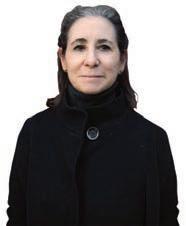
6 | CRAIN’S NEW YORK BUSINESS | FEBRUARY 20, 2023
ASKED & ANSWERED
HENNY GARFUNKEL
To place your listing, visit www.crainsnewyork.com/people-on-the-move or, for more information, contact Debora Stein at 917.226.5470 / dstein@crain.com Advertising Section
Uber and Lyft provide nearly identical rides, but their market valuations couldn’t be further apart
The market is declaring Uber the clear winner in the same way Amazon lords over Macy’s
If there’s a difference between an Uber or Lyft ride, I can’t tell.
Whichever you call, it’s the same drivers in the same cars charging the same rates.
But Uber and Lyft aren’t the same at all, so far as the financial community is concerned. Uber has a $70 billion market valuation, but Lyft’s is less than $4 billion.
That’s striking, considering both are seeing ridership recover in New York, and at much faster rates than taxis, although it remains 15% below prepandemic levels. Both are also constantly nickel-and-diming drivers, who have been asking Albany to classify them as employees so they can get the right to unionize. And even after more than 10 years in business, neither Uber nor Lyft is remotely profitable.
Yet the market is declaring Uber the clear winner in the same way Amazon lords over Macy’s.
ON POLITICS
It starts with Uber being bigger and more diverse because of its food delivery and trucking business. Its $32 billion in annual revenue is eight times larger than Lyft’s; rideshare is the entire ballgame for Lyft. Uber operates in 72 countries; Lyft, in the U.S. and Canada.
DataTrek Research co-founder Nick Colas said Uber has “a little more of a ‘super-app’ feel than Lyft.”

Another difference lies in the stocks themselves.
At Lyft, the co-founders are still in charge, thanks to a special class of stock that gives them ironclad control of the boardroom.
(Mark Zuckerberg has the same perk at Meta Platforms.) This situation doesn’t exist at Uber, which has a single class of stock for all investors, and if management mismanages things, then Carl Icahn, or someone like him, will soon call for a chat.
That pressure would explain why
Uber diversified into logistics, which can be a highly profitable business—unlike, it seems, ridesharing.
Viable business plan?
Ridesharing swamped the taxi business a decade ago and changed city living in really useful ways.
Uber recently said it surpassed 2 billion trips globally in a single quarter for the first time. New Yorkers e-hailed an Uber or Lyft more than 600,000 times in December, according to Taxi & Limousine Commission data, compared to waving down 100,000 cabs.
Even so, Uber still posted $500 million in net losses for 2022, and Lyft tallied up a $1.5 billion annual loss.
Uber went public in 2019 at $45 a share and now trades for $34. Lyft went public at $72 a share and now trades for $10, meaning investors question whether ridesharing will be a viable business plan for a public company. There is good reason to wonder.
Consider that ever since New
York created the modern taxi business in the 1930s, only one company ever went public: taxi lender Medallion Financial in 1996. Despite the clear opportunity, no entrepreneur ever rolled up a bunch of drivers or fleet operators into a company and took it public. That’s revealing because public firms emerged from just about every other sector in the transportation business, from car manufacturers to airlines and trucking firms.
After Uber and Lyft blitzed the taxi business, their task became filling the seats at high-enough prices to offset high upfront costs. It’s easy to get this balancing act wrong, which explains why airlines frequently went bankrupt before the pandemic. Taxis managed to avoid this problem in part because they were a government-protected monopoly.
The solution for Uber is clear: Acquire Lyft and restore the monopoly that taxi drivers once had. That would make for one really super app. Now, if only the Biden administration would approve. ■
Hochul’s subsidies for Buffalo Bills stadium, film and TV won’t bring a return on the investment
with tax subsidies
If Gov. Kathy Hochul, in style and temperament, is nothing like her needlessly pugilistic predecessor, Andrew Cuomo, there are some unsettling similarities between the two when it comes to policy. In the past year, Hochul has shown she is every bit as eager to shower the wealthy and well-connected with tax subsidies. First, there was the billion-dollar giveaway for a new Buffalo Bills stadium, the largest subsidy ever handed out to an NFL stadium.
Now, Hochul is seeking to boost the enormous state subsidy to New York’s television and film industry, as well as offer up almost a half-billion dollars to the struggling horse racing industry. It’s bad economics masquerading as job creation, and the state would be better off if both programs were abandoned altogether. But unless the Democratic-run Legislature stands up to Hochul—and many lawmakers there love this version of corporate welfare—the subsidies will continue indefinitely.
Carl Heastie, the Assembly speaker, has already said he’s “per-
sonally very supportive” of the tax break for film and television productions, which Hochul wants to expand to $700 million a year in the upcoming budget. New York already plows $420 million annually into the industry as a lure for production companies to come here.
Hochul wants to extend the program through 2034, increasing the amount of state tax credits available to Hollywood filmmakers by $2.8 billion in the next decade. It is, by far, the largest tax break New York offers to any single industry.
On the sheer merits of creating employment for people who work in film and television, the program works. Studios are setting up in New York, and film shoots are everywhere. At least 35 states offer some sort of incentive to film producers, according to the National Conference of State Legislatures, putting New York in a race to the bottom with much of America.

The film and television tax credit doesn’t pay for itself; the economic activity generated won’t nearly make up for the $700 million annually sacrificed in state revenue. Oth-

er states have concluded that these programs aren’t, for the most part, workable. Analysts in California, Pennsylvania and Virginia have all cast doubt on the return on investment from film tax credits, with the California Legislative Analyst’s Office concluding the “costs outweigh the benefits.” A decade ago a tax commission appointed by Cuomo found the credit should be rolled back.
Yet the program will persist in part because Hollywood remains a reliable source for campaign donations. Steven Spielberg, Jeffrey Katzenberg and Michael Eisner were
all heavyweight donors to Hochul’s election campaign last year. In Albany, money always talks.
The horse racing subsidy operates under similar faulty logic; the taxpayer windfall handed out doesn’t pay for itself. And unlike the TV and film industries, racetracks are significant money losers.
A tremendous share of the subsidies comes from gamblers’ spending on digital lottery machines near the racetracks. State law gives the racing association a share of the machines’ earnings.
Hochul’s budget proposal would prevent lawmakers from peeling back these racetrack subsidies. If the governor’s suggested loan to the industry goes through, the racing association will be required to take a portion of its cut from the lottery machines and send it to the state as repayment. The subsidy structure endures.
For the average voter, cynicism here is justified. Democrats and Republicans alike safeguard the status
quo. When Hochul took office, she promised a clean break from the past. When it comes to taxpayer giveaways, nothing much has changed at all.
If the state is going to hand out tax breaks so willingly, why not subsidize an expanded child tax credit? A new housing voucher program? The powerless deserve the aid Hochul seems to want to shower on the powerful.
Quick takes
● The City Council will probably renew Madison Square Garden’s special permit, allowing it to continue to host sporting events and concerts. But the Democrats, wary of MSG owner James Dolan, may demand further concessions—and the permanent permit Dolan craves is likely not a possibility.
● Mayor Eric Adams is right about at least one thing: The city should not contribute any more money to the Metropolitan Transportation Authority’s coffers. Hochul’s budget has a much bigger ask, but the city already offers the lion’s share of support through farebox revenue. ■
Ross Barkan is a journalist and author in New York City.

February 20, 2023 | CraIN’S NeW yOrK buSINeSS | 7
GETTY IMAGES
IN THE MARKETS
AARON ELSTEIN
Hochul has shown she is every bit as eager to shower the wealthy and well-connected
ROSS BARKAN
UBER HAS a $70 billion market valuation, compared with Lyft’s $4 billion.
FILMING IN CHELSEA
ISTOCK
City’s business community must do more to elevate Black leaders
Look around your o ce. Take stock of your team. Does it re ect the greater New York community and the customers your company serves?
is week we celebrate 50 Notable Black Leaders in our business community (pro les start on page 13). It’s a cohort of authentic visionaries who are orchestrating deals, disrupting industries and bringing up a new generation of changemakers.
ere’s a lot to learn here about the importance of sta development and mentorship, equity in hiring and promotion, and workplace allyship for diverse talent. e stories o er a bit of hopeful news at a time when Black
industry are Black, according to the CFA Institute; diversity in the C-suite is even more sparse. In the real estate industry nationwide, white men hold 75% of senior executive jobs, according to a 2017 study by the Bella Research Group and Knight Foundation. Just 1.3% of top posts were held by Black men and less than 1% held by nonwhite women. In the health care space, only one of the city’s six major health systems, Monteore, is helmed by a Black executive, Philip Ozuah. Just 5% of physicians nationwide are Black, according to the Association for American Medical Colleges.
professionals remain woefully underrepresented within key industries in a city where the Black population stands at about 25%.
Nationwide, only about 5% of workers in the nancial services
OP-ED
New York is making progress in the political arena, thanks to a wave of Black elected o cials, as Ross Barkan noted in last week’s cover story. Both the speaker of the Assembly and the state Senate are Black, as is the state's attorney general, Letitia James.
e City Council speaker, Adrienne Adams, is Black, along with Jumaane Williams, the public advocate. e district attorneys of Manhattan and the Bronx are Black, as are the borough presi-
dents of Queens and the Bronx. Every Democratic county leader in the city outside of Staten Island is Black. And Brooklyn congressman Hakeem Je ries was just elected House minority leader.
“It’s a watershed moment. Our political power—something that many of our ancestors struggled for, died for—is now reaching a zenith almost,” said Donovan Richards, the Queens borough president.

Meanwhile, the actual Black population in the city is diminishing. Many working- and middle-class families are leaving as
their old neighborhoods gentrify, housing costs skyrocket and upwardly-mobile career opportunities are limited. Black elected o cials are prioritizing quality-of-life improvements—from housing to policing, health care to education—in a bid to stem the tide.
New York’s business community has a role to play as well, by partnering with local educational institutions, recruiting and hiring diverse talent, de ning career development paths and empowering leaders like those recognized in Crain’s this week. ■
Clear regulations could amplify the best of the outdoor dining program
BY JEFFREY GARCIA AND LUISA TORRES
We hear it all the time: Why can’t we be more like Europe, with its plazas and piazzas where people gather for co ee, lunch, dinner or a glass of wine and it all seems to come together so e ortlessly? We now have an opportunity to transform the city’s alfresco dining scene for the better by creating a well-thought-out and regulated permanent program.
In March 2020 the pandemic forced restaurants to close their doors, threatening the future of the entire restaurant industry. To stave o an industry collapse, the city acted with unprecedented speed and created the Open Restaurants program essentially overnight, loosening regulations on outdoor dining and allowing temporary structures for outdoor seating.
Open Restaurants became a lifeline to businesses throughout the
city, and it provided a respite for lockdown-weary New Yorkers who longed to do what New Yorkers do best: gather with friends and family to eat out.
Open Restaurants saved 100,000 jobs during the pandemic and can be credited with saving many restaurants, including many of our members of the Latino Restaurant Bar & Lounge Association, which is made up of 350 minority- and immigrant-owned businesses throughout the city that operate mostly in communities of color. Before the pandemic, many of our restaurants did not take advantage of outdoor dining for many reasons, including burdensome fees and zoning limitations.
In fact, during the height of the pandemic, when restaurants were ordered to shut their doors, Mojitos Restaurant Bar in Queens was forced to lay o all of its employees. Open Restaurants o ered Mojitos a glimmer of hope. Not knowing what to expect, Mojitos
invested in the infrastructure, and it paid o —its outdoor dining was so popular, it was able to hire back all of its sta . But that wasn’t enough, so Mojitos added 10 staers, and it ended up employing more people than prepandemic. Mojitos’ outdoor dining remains incredibly popular, even with an indoor option.
Keep the best
Today, with the pandemic in the rear-view mirror, we need to keep the best of the program while doing away with some of the temporary elements that were once vital but have now worn out their welcome in our communities.
A bill before the City Council will help do just that. e bill, sponsored by City Council member Marjorie Velasquez, would make outdoor dining permanent and establish guidelines and protocols with rules and measures in place. We need to pass it now.
is bill would require a stream-
president & ceo K.C. Crain
group publisher Jim Kirk
publisher/executive editor
Frederick P. Gabriel Jr.
EDITORIAL
editor-in-chief Cory Schouten, cory.schouten@crainsnewyork.com
managing editor Telisha Bryan
assistant managing editors Anne Michaud, Amanda Glodowski
director of audience and engagement
Elizabeth Couch
audience engagement editor Jennifer Samuels digital editor Taylor Nakagawa
art director Carolyn McClain
photographer Buck Ennis
senior reporters Cara Eisenpress, Aaron Elstein, C.J. Hughes, Eddie Small reporters Amanda D’Ambrosio, Nick Garber, Jacqueline Neber, Natalie Sachmechi, Caroline Spivack
op-ed editor Jan Parr, opinion@crainsnewyork.com
sales assistant Ryan Call to contact the newsroom: editors@crainsnewyork.com www.crainsnewyork.com/staff
685 Third Ave., New York, NY 10017-4024
ADVERTISING
www.crainsnewyork.com/advertise
sales director Laura Lubrano laura.lubrano@crainsnewyork.com
senior vice president of sales Susan Jacobs account executives Paul Mauriello, Marc Rebucci, Philip Redgate people on the move manager Debora Stein, dstein@crain.com
CUSTOM CONTENT
associate director, custom content Sophia Juarez, sophia.juarez@crainsnewyork.com





custom content coordinator Ashley Maahs, ashley.maahs@crain.com
EVENTS
www.crainsnewyork.com/events
manager of conferences & events Ana Jimenez, ajimenez@crainsnewyork.com
senior manager of events Michelle Cast, michelle.cast@crainsnewyork.com
REPRINTS
director, reprints & licensing Lauren Melesio, 212.210.0707, lmelesio@crain.com
PRODUCTION
lined design (no more “sheds”) and allow the agency to take street width into account. It would do this while decreasing the exorbitant cost of sidewalk cafés, allowing more restaurants to use the space in front of their restaurants for seating—an option they did not have in the past. Lastly, a permanent program would give restaurants the certainty they need to invest in their spaces.
As our members gear up during the summer for what will be the city’s third outdoor dining season, we need clarity and certainty for the future of outdoor dining. Let’s get this legislation done so businesses can plan and prepare accordingly for this much-needed and popular program. ■
Je rey Garcia is president of the New York State Latino Restaurant, Bar and Lounge Association. Luisa Torres is owner of Mojitos Restaurant Bar in Queens and a member of the association.
production and pre-press director Simone Pryce media services manager Nicole Spell
SUBSCRIPTION CUSTOMER SERVICE www.crainsnewyork.com/subscribe customerservice@crainsnewyork.com 877.824.9379 (in the U.S. and Canada). $140.00 one year, for print subscriptions with digital access.
Entire contents ©copyright 2023 Crain Communications Inc. All rights reserved. ©CityBusiness is a registered trademark of MCP Inc., used under license agreement.

chairman Keith E. Crain
vice chairman Mary Kay Crain president & ceo K.C. Crain
senior executive vice president Chris Crain editor-in-chief emeritus Rance Crain chief nancial of cer Robert Recchia founder G.D. Crain Jr. [1885-1973] chairman Mrs. G.D. Crain Jr. [1911-1996]
8 | CRAIN’S NEW YORK BUSINESS | FEBRUARY 20, 2023
“IT’S A WATERSHED MOMENT OUR POLITICAL POWER IS NOW REACHING A ZENITH ALMOST”
EDITORIAL
JEFFRIES BLOOMBERG
Department of Health needs to step in to save Brooklyn’s failing Maimonides Medical Center
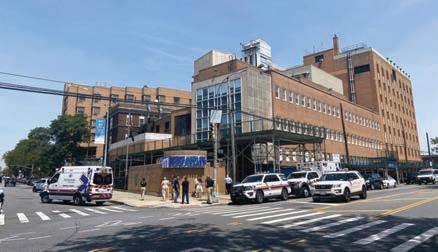 BY DAVID LICHTENSTEIN
BY DAVID LICHTENSTEIN
During the fall, I, along with 30,000 others, signed a petition demanding the New York state Department of Health step in to oversee Maimonides Medical Center.
e data shows how the Brooklyn hospital is failing its patients. e Leapfrog Group, a national nonpro t watchdog organization, has given Maimonides Medical Center ratings of D and F for safety since 2019, and it has scored it below average on essential services, such as preventing blood clots, post-surgical infections, bed sores and deaths from treatable complications.
e hospital’s serious gaps in care, while exacerbated by Covid-19, existed years before the pandemic. Instead of using the federal and state funding that came in to prop up hospitals ghting the pandemic, leadership squandered money.
e situation has gotten so bad that nurses pushed to their breaking point have had to protest against chronic understa ng and threaten to strike for fair wages—while executives make millions of dollars and spend even more on vanity projects, such as the naming rights for a minor league baseball stadium.
Bankruptcy is likely
e state Health Department can step in and take over the operations of a hospital under public health law when conditions are a danger to patients, when management is failing or if it is experiencing “serious nancial instability.”
Not only does Maimonides rank 148 out of 148 hospitals in the state in patient satisfaction, according to the Health Department, but the hospital’s own accountants have warned that bankruptcy is likely unless the state takes action. We have reached a point where the state has both the legal and ethical obligation to step in and save this vital hospital from its own leadership.
e planned merger with Northwell Health, with its distinguished track record of stepping in and saving historical hospitals under -
nancial distress, is the ideal way to provide Maimonides with the funds, the resources and the experience to return the facility to its previous status as a respected and relied-upon community hospital.
If Maimonides Medical Center’s leadership refuses to make changes, the state must enforce its own regulations for the sake of the well-being
of the people of Brooklyn.
Every one of us will eventually nd ourselves in a hospital with a loved one. People in that time of fear and vulnerability don’t want their health to be in the hands of the hospital that ranked dead last in patient satisfaction among hospitals in the state.
e state Health Department
must act now. ■
David Lichtenstein is chairman and CEO of Lightstone, a real estate investment company, and a philanthropist who has served on many public-sector boards, including that of New York Medical College. He spoke at a “Save Maimonides” event in August.
Gateway is the most important infrastructure
stop there?
BY CARLO A. SCISSURA
Standing with our neighbors across the Hudson River in October 2021, President Joe Biden called out one of our nation’s most pressing crises in no uncertain terms: aging infrastructure. It’s more than an inconvenience or a nuisance—it’s an impediment to America’s global competitiveness.
One month later the president signed the monumental Infrastructure Investment and Jobs Act into law. It provided a once-in-a-generation opportunity to create a better future; it was the most signi cant investment ($1.2 trillion) in communities and economic and workforce growth in our nation’s history.
In New York, we’ve been patiently waiting our turn to experience the transformative potential of the IIJA. You can nd outdated infrastructure everywhere you look. Our once-revered subway system remains strained and inaccessible for
too many. Our housing crisis is unprecedented, and conditions across our public-housing portfolio remain unacceptable. On top of everything else, we remain behind the eight-ball on preparing our neighborhoods for the devastating e ects of climate change.
Vital projects that will rede ne our city and state for generations to come are ready to roll and just waiting to receive the funding needed to spring into action. Recently, the president stood in Manhattan to initiate just that.
e Gateway program is the most important infrastructure project in the nation. Period. Once completed, Gateway will fully restore two rail tunnels between New York and New Jersey and construct two new tunnels, doubling transportation capacity for the busiest commuter corridor in the nation.
e existing tunnels are severely strained; they moved 200,000 passengers daily. Still reeling from the devastation of Superstorm Sandy, they are compromised. But since the IIJA was signed into law, the tunnels under the Hudson River have remained untouched, with funding very slow to get out the door—until now.
I’ve been saying it for years: No infrastructure project anywhere in the United States stands to deliver more economic output, good jobs and quality-of-life bene ts than Gateway. It will create more than 72,000 jobs, generate $19 billion in economic activity, increase longterm climate resiliency, and improve the lives of hundreds of thousands of daily commuters. We are deeply grateful to the Biden administration and Sen. Charles Schumer, a longtime infrastructure ally, for getting it moving.
But Mr. President, while we have
your attention in New York after your recent visit, there is a long list of deserving infrastructure projects that are shovel-ready and can have similar e ects on livability, accessibility, equity and resiliency for our residents and neighbors. Like Gateway, they too need immediate action.
The list goes on Federal support through the IIJA is essential to actualize transformative projects that can rewrite New York’s future. Getting the Interborough Express and a new Port Authority Bus Terminal, reimagining
the Brooklyn-Queens Expressway, renovating Penn Station, and expanding the Second Avenue subway would alleviate pressure on our transportation infrastructure and increase accessibility.

Tackling the New York City Housing Authority’s staggering capital needs would transform the lives of the 530,000 registered residents who call these buildings home. e Army Corps of Engineers’ proposed system of storm surge gates would save lives and protect the city’s most vulnerable neighborhoods from rising sea levels.
e list goes on. We have our work cut out for us; implementing the IIJA is no small feat. Recently, the Building Congress launched our Infrastructure Action Council to help along the way. e IAC is composed of building industry leaders advocating, in Albany and Washington, D.C., expanded IIJA education and outreach, streamlined reviews and expedited funding, all with the goal of getting shovels in the ground faster.
For today, we celebrate the forward momentum gained on Gateway. Our IAC will work to keep Washington’s eye rmly xed on New York’s next building boom. ■
FEBRUARY 20, 2023 | CRAIN’S NEW YORK BUSINESS | 9
Carlo A. Scissura is CEO of the New York Building Congress.
OP-ED OP-ED
project in the country—but why
THE HOSPITAL HAS RECEIVED GRADES OF D AND F FOR SAFETY
THE EXISTING TUNNELS ARE SEVERELY STRAINED; THEY MOVED 200,000 PASSENGERS DAILY
MAIMONIDES MEDICAL CENTER
MAIMONIDES MEDICAL CENTER
THE LINCOLN TUNNEL BLOOMBERG
we have no 421-a.”
On top of that, in ation, Russia’s war against Ukraine and pandemic supply-chain disruptions pushed the prices of raw materials up 14% nationally in 2022, CBRE reported. And developers looking to re nance to help reel in costs got burned by high interest rates. Skilled labor has also been harder to nd, some developers say.
“Anybody working on a multifamily project in the last year, whatever their nancial model or projections were, found themselves with the same project when it comes to an address,” Weiss said, “but a very di erent project when it comes to a nancial standpoint.”
Such turmoil and uncertainty in the industry has forced developers to consider alternative plans for projects that are already underway until 421-a is replaced or another path forward emerges to make the economics of building more palatable. Everything from building on city-owned land to pivoting to condo development is now under consideration.
Switching gears
e 421-a program had its critics. In 2022 alone, it cost the city $1.8 billion in unrealized tax revenue, according to city Comptroller Brad Lander, who told Crain’s it led to housing that was still too pricey for many New Yorkers.
Created in 1971 in a city that was shedding population, the tax abatement originally expired in 2016, only to be reborn with more restrictions and a new name, A ordable New York, the next year.
From 2016 through June 2021, the program supported the planning or creation of 39,907 total apartment units across the boroughs, according to the Independent Budget O ce. Of that number, just over 70% were market-rate units; the rest were designated as a ordable apartments. Nearly half of the a ordable units were priced for middle-income renters, while just 1% were reserved for extremely low-income households.
But since its June 2022 demise, no lawmaker has been able to revive it, and Gov. Kathy Hochul didn’t even mention it in her preliminary state budget plan this year. She did, however, propose extending the completion deadline for projects to qualify for the tax abatement to 2030; the completion deadline as it stands now is June 2026.
e governor proposed an affordable housing tax break in her budget, but it would apply only to municipalities made up of fewer than 1 million residents. at has left a ordable housing developers in the ve boroughs looking to get creative.
Weiss, for one, is focusing now on wholly-a ordable projects and said he stopped searching for 421-a opportunities a year ago.
In the current environment, an ongoing e ort to add housing to city-owned land on hospital campuses where developers don’t have to pay to lease the site has become commonplace.
Nonpro t developer Comunilife is about to break ground on an 8-story, 92-unit apartment house on a former parking lot at Woodhull Medical Center in Bedford-Stuyvesant. e rental building will serve seniors and low-income renters who make no more than 60% of the area median income, or about $56,000 a year. A similar property from 2019 with 89 units is next door.
Along the same lines, o cials plan to replace a 4-story, 59,200-square-foot development at 1727 Amsterdam Ave. in Hamilton Heights with a 9-story, 200-unit affordable building with the same income threshold. Fueled by a 99year ground lease, the nonpro t Bowery Residents’ Committee is developing the project, which isn’t expected to break ground until after it locks in nancing in a year. e site is currently home to the Heritage Health Care Center.

“Using public land for a public purpose is a workable model and has historic precedents,” said Leora Jontef, an assistant vice president at NYC Health + Hospitals, which operates the city’s public medical facilities. “ is is a win.”
Mayor Eric Adams has planned a total of four similar projects through the next ve years, a boost from the nine completed in the past 15, according to a Health + Hospitals spokeswoman.
Developers may also switch to favor condo development (see “Condo projects spring up—very slowly—in the outer boroughs,” page 12). e fact that they have continued to build them pro tably and recoup their investments within a few years of construction may make them more appealing than ever, analysts say.
Brooklyn-based Two Trees Management, which hasn’t built condos
since the 1990s, has considered using its development sites to do just that.
When the company, run by Jed Walentas, dropped $185 million to buy the site of the former Domino Sugar factory from the Community Preservation Corp. in 2012, it intended to build more than 2,000 mixed-income rental apartments and o ce space.
e project, an 11-acre megadevelopment, was to be delivered in phases across several buildings using the 421-a tax abatement program.
Two of its buildings are already subject to using the tax program. Site D, a separate phase that will include 600 apartments across two towers, is already under construction and, because of this, will also qualify for the tax exemption when it’s complete.
But Site B, the 1 million-squarefoot development that has yet to be constructed, is racing against the clock. Although its foundation was put in place before June, it is at risk of missing the 421-a program’s second requirement: a June 2026 completion deadline. It also might not be done by Hochul’s proposed deadline extension to 2030.
“Right now we’re in the clear for Site D, which is under construction, [but] it’s cloudy for B, and for the rest, it’s murky,” said David Lombino, Two Trees’ managing director of external a airs. “If things continue without … an incentive program that makes multifamily [construction] more economical, everything is on the table,” he added, hinting at possible condo construction.
But not every site can support condos, and the condo market tends to be more cyclical than rentals, said Mark Willis, senior policy fellow at the NYU Furman Center, a nonpartisan housing think tank. In the mid-1980s he helped shape a housing plan for Mayor Ed Koch that depended on 421-a.
e pie of subsidies for a ordable housing is xed in size, so all developers can’t suddenly switch gears and take a piece, said Hayley Raetz, a policy director at the NYU Furman Center.
said condos are not on the table.
In the meantime, they’re able to move forward with a part of the project that entails building 478 entirely a ordable units without 421-a. e whole project, however, could never be entirely a ordable. “ e city could never devote that much of its resources,” Appelbaum said.
When asked how much time the developers have before it’s too late to salvage their deal, she replied, “I don’t have an answer for you.”
Next steps
For now developers are adopting a wait-and-see approach when it comes to what the Legislature does. ey seem to be making one thing clear, however: ey’re not going to build if it means taking a bath on their investments.
“In the absence of 421-a, you either have to do a condo or get in line at [the Department of Housing Preservation and Development] and try to build a ordable housing,” Appelbaum said. “But if you paid the land prices people have to pay, HPD won’t want to subsidize that.”
“We are not likely to see an explosion of pure a ordable development,” Raetz said.

And not all developers see condos as a way forward.
A $2 billion Astoria development site, Innovation QNS, was left in the lurch when 421-a expired. e project, slated to be completed in 10 years, which will fall after both the original and the possibly extended 421-a completion deadline, is expected to bring nearly 3,000 units of rental housing to the neighborhood, with around half of the units reserved as a ordable housing.
It’s being developed by Silverstein Properties, BedRock Real Estate Partners and Kaufman Astoria Studios, and the lack of a replacement for the tax-abatement program is making them nervous.

“All I can tell you is we are in the same boat as everyone else,” said Tracey Appelbaum, BedRock’s co-founder. “ e deal does not work without 421-a.”
Because most of the Astoria project is on land leases, the pressure is on for the developers to explore their options. e partners are working on another way to create value if they are left without a tax-incentive program.
Appelbaum declined to comment on what that would entail but
When it comes to building below-market-rate units using the 421-a program, the tax break pays for the construction of the units themselves rather than serves as a pro t engine down the road, Appelbaum said.
“I can tell you that if you take what the rent is on an a ordable apartment, it more or less pays for operating expenses for that apartment,” she said. “But you have to be able to build that unit. If the money goes to paying expenses, who paid for building the unit?”
“What really needs to happen is that legislators and real estate people need to sit down and talk about math and not about rhetoric,” said Peter Fine, managing member of Bolivar Development, which has built more than two dozen projects since the 1990s using 421-a.
His company is now at work on two all-a ordable projects in the Bronx, one at 3041 Webster Ave. and another at 1959 Jerome Ave.
Two Trees intends to move forward with its projects as planned, as do all the developers with shovels in the ground on 421-a projects, but the outcome is uncertain.
“ is is a risky business, and there are a lot of variables,” Lombino said. “At every point developers are taking the temperature of what’s going to be pro table and feasible.” ■
10 | CRAIN’S NEW YORK BUSINESS | FEBRUARY 20, 2023
COSTS FROM PAGE 1
BUCK ENNIS
BUCK ENNIS
“LEGISLATORS AND REAL ESTATE PEOPLE NEED TO SIT DOWN AND TALK ABOUT MATH”
APPELBAUM said the deal for Innovation QNS “does not work without 421-a.”
1727 AMSTERDAM AVE.
PRIME LOCATION!
COMMERCIAL/INDUSTRIAL PROPERTY AVAILABLE IN MASPETH, QUEENS, N.Y. AUCTION SALE







Queens County Court House 88-11 Sutphin Blvd., on the steps of the Court House, Jamaica, New York 11435
MARCH 3RD, 2023 - 11:00 A.M.
Block 2557: Lot 70 – 54-65 48th STREET, FLUSHING, NY
Lot 75 – 54-35 48th STREET, FLUSHING, NY
Lot 80 – 54-37 48th STREET, FLUSHING, NY
Block 2556: Lot 1 – 54-21 48TH STREET, FLUSHING, NY Lot 22 – 48-14 54th AVENUE, FLUSHING, NY
Block 2546: Lot 66 – 54-66 48th STREET, FLUSHING, NY
Public auctions of six parcels (each parcel sold separately) per order and judgment in commercial partition action; under Supreme Court, Queens Co. Index No. 702837/2019.
Full information available to interested bidders: Call 888-647-4053 or email inquiries to ParisiMaspeth@gmail.com
Access will be provided to interested parties. Access to a drop box with information about all properties is available to all including: Terms of sale; available surveys; current leases: (Block2556,Lot22 and Block2557Lot 75 are vacant). 1 70 75 80 66 22 LOT 1 LOT 22 LOT 70 LOT 75 LOT 80 LOT 66
CONDO PROJECTS SPRING UP—VERY SLOWLY—IN THE OUTER BOROUGHS
PERMITS DON’T ALWAYS SPELL OUT whether a development will offer rentals or for-sale apartments. And developers sometimes change their mind along the way.
But it appears that the condo-development market has been listless for months. With interest rates on 30-year mortgages cresting above 7% in October for a 20-year high, there’s been a lull on the demand side.
Indeed, new-development condos in Manhattan saw their median sale price in the fourth quarter drop 11% from the previous year, to $1.98 million, according to data from Douglas Elliman. And activity in the sector plunged by 32% between the end of 2021 and the end of 2022.
Developers’ own loans for projects, which can carry even higher interest rates, also got pricier, chilling the supply side as well.
Not that anyone may notice. Projects started before 2022 likely won’t arrive for years, so at rst blush there might seem to be nothing amiss with the pace of new condo construction. The current dearth might not be recognized until way down the line.
But despite less-than-favorable economic conditions, a handful of developers do seem to be embarking on projects, perhaps because the rental market has been drying up (see “Caught in limbo, page 1”).
A lot of the activity seems concentrated in the outer boroughs, which can have lower land costs than Manhattan, though the scale of some of the planned projects is often modest.
For instance, Jeremy Armstrong, an executive with the development company Two Trees Management, has launched a side project to build his rst condo in Williamsburg, a three-duplex version at 103 Grand St. near Wythe Avenue.

According to an offering plan led with the state’s attor-











ney general earlier this month, a $10.5 million sell-out is anticipated for the project, a redevelopment of an existing 4-story, prewar structure that will gain about 20 feet in height to t the unit mix. But the offering plan still requires approval before unit prices are nalized.
According to the City Register, Armstrong paid $3.1 million for the 4,500-square-foot property in January 2022, and First Republic Bank has contributed $4 million innancing. Armstrong, who previously developed small rental projects in Brooklyn neighborhoods including Vinegar Hill, said the pandemic had been challenging in terms of rent collection.
But the two-dozen banks he spoke to about 103 Grand St. seemed open to nancing a boutique condo project, said Armstrong, who added that paying too much attention to economic cycles is probably unwise.
“You should really build with the customer in mind and not yourself in mind, even if interest rates go higher and lower,” he said. “It’s not so much about return on investment for me but about, if you build it, will they come?”
Similarly, a 4-story, 10-unit condo is springing forth from an empty lot at 1064 Hancock St. in Bushwick. Prices start at $356,000 for a studio and go up to $1.1 million for a two-bedroom, according to its offering plan, which was approved by state of cials this month. The condo will also have a roof deck and a six-bicycle bike room, plans show. The brokerage Compass will handle sales.
The sponsor’s name, meanwhile, is listed as Matthew Bristol, whose family appears to have owned the property, which is on a low-slung block near Bushwick Avenue, for decades, according to property records. Midtown-based lender Emerald Creek Capital pitched in $2.2 million in the latest round of nancing, records show. An effort to reach Bristol through his attorney for the project was unsuccessful.
PEOPLE ON THE MOVE
ACCOUNTING
Withum

Michael Hurwitz, CPA, Partner, has over 35 years of experience working for both public and private companies in the real estate sector. He specializes in negotiations, including structuring and implementing strategic transactions, tax due diligence assignments, M&A and more. He is a former adjunct professor at New York University’s Schack Institute of Real Estate and Fordham University.
Tony Panico, CPA, MS, Partner, has over 27 years of experience specializing in tax compliance, consulting and planning. He is on the Technology and Emerging Growth team and is the Leader of the team’s Founder’s Group. He has signi cant experience serving high-net-worth individuals and closely held businesses, including partnerships and S corporations.



EDUCATION
Cornell Tech
Neil Giacobbi joins Cornell Tech’s senior leadership team as Assistant Dean for External Affairs. He will lead Cornell Tech’s strategic external collaborations, including communications and marketing, government and community affairs and industry relations. Giacobbi comes to Cornell Tech from AT&T, where he served on the public affairs team for eight years. He lives in New York City and graduated from Cornell in 1996 with a Bachelor of Science degree in Industrial and Labor Relations.
HEALTH CARE
MetroPlusHealth

MetroPlusHealth, NYC’s high-quality, affordable health plan, has appointed Dahlia Philips,M.D. as Medical Director of its Partnership in Care Special Needs Plan. Dr. Philips will oversee the delivery of wholistic, person-centered care for HIV-positive, transgender and homeless New Yorkers, advancing the plan’s mission to be a top provider for NYC communities.

LAW
Benesch Law


Other developers appear to be banking on a hybrid approach, such as at 22-60 46th St. in Astoria, an 8-story, 99-unit, under-construction building that will have both rental and condo sections. The condo side will include 35 units, according to a preliminary offering plan led with state of cials Feb. 7. The site, near Grand Central Parkway, will also have 64 rental units, 21 of which must be offered at below-market rates because the project quali ed for a property tax abatement through the Affordable New York program, the last version of 421-a. Tentatively called Fabric Astoria, the development broke ground before the tax program’s June expiration date.
Fabric’s developer is a limited liability company headed by Hercules Argyriou, who’s also a vice president of Mega Contracting Group. Mega appears to have owned the site since 1992, when the corner lot contained a 1-story warehouse and the surrounding neighborhood was hardly a hot spot. Argyriou had no comment.
To
Benesch is pleased to welcome Aslam Rawoof as a Partner in the rm’s Corporate & Securities Practice Group. Aslamhas a broad transactional practice, including capital markets transactions and corporate governance matters. Aslam represents issuers and underwriters on a variety of complex securities matters, including initial public offerings, other public and private equity offerings, investment grade and high-yield debt offerings, and acquisition nancings, among others.
LAW
Difede Ramsdell Bender PLLC

Law rm Difede
Ramsdell Bender recently opened a New York City of ce spearheaded by veteran attorney Lawrence J. “Larry” Hass who joins the rm as a member and will lead DRB’s New Yorkbased real estate investment funds practice. At DRB, Larry will concentrate his practice on assisting clients in the structuring, formation and offering of investment funds, and the management, operation and regulatory compliance of those funds. Larry is legal counsel for the Pension Real Estate Association.
LAW
Hodgson Russ LLP

Christofer C. Fattey has been named Hodgson Russ LLP


Real Estate, Finance & Bankruptcy Practice
Area Leader. Chris is a versatile business lawyer with experience in commercial lending, project nance, real estate, and construction matters. Chris is continuously recognized for his work in banking and nance law, from both Upstate New York Super Lawyers and Best Lawyers in America. In addition, he was named a Fellow of the Construction Lawyers Society of America in 2018.

12 | CRAIN’S NEW YORK BUSINESS | FEBRUARY 20, 2023
REAL ESTATE BUCK ENNIS —C. J. HUGHES 103 GRAND ST WILLIAMSBURG
Advertising Section
place your listing, visit www.crainsnewyork.com/people-on-the-move or, for more information, contact Debora Stein at 917.226.5470 / dstein@crain.com
Hurwitz Panico
SHARE YOUR COMPANY’S JOURNEY Feature your latest milestones, launches, partnerships, awards and more in Crain’s For more information, contact Debora Stein at dstein@crain.com or submit directly to CRAINSNEWYORK.COM/COTM
IN CELEBRATION OF BLACK PROFESSIONALS, in this issue
Crain’s is highlighting many of the pacesetters uplifting New York.
Black New Yorkers make up nearly a quarter of the city’s population and can be found across its most vaunted industries. Crain’s sought to recognize exemplars of leadership not only at the o ce but also in their communities in this rst edition of Notables for 2023.
e 50 professionals who made the grade hail from a broad range of backgrounds and occupations. When you dive into the list, you will nd individuals who have risen to the heights of medicine, law, nance, real estate, technology and communications, among other elds. You will also discover people who have founded nonpro ts, supported young people a ected by the criminal-justice system, promoted minority-owned businesses, opened doors to opportunity and pushed for health equity.
To qualify, candidates had to self-identify as Black and must have held a leadership position in the New York metropolitan area for at least ve years.
EJIM ACHI
Co-managing shareholder of the New York of ce and co-chair of the New York corporate practice | Greenberg Traurig
At Greenberg Traurig’s New York, Achi represents private-equity sponsors in transactions regarding buyouts, mergers, acquisitions, divestitures, joint ventures and other investments across industries and sectors. He has developed and implemented practices that in uence the strategic direction of the law rm’s mergers and acquisitions practice. Aiming to broaden access to high-return investment opportunities, he co-founded Savantus Venture Fund I, an early-stage venture-capital fund whose limited partners are all Black New Yorkers. Achi is a board member of the Center for Urban Community Services and a mentor for lawyers of color.
PETER ADAMS
Global head of brand partnerships | Mozilla

Adams’ responsibilities at Mozilla include go-to-market strategies and marketing, international expansion, partnerships and business development. He also sits on the company’s diversity, equity and inclusion council. Before joining Mozilla, he held advertising sales roles at e New York Times and the Eurasia Group, a political risk consultancy. As a member of Riverside Church, he is involved in communityimpact initiatives such as the Welcome Home program for incarcerated individuals re-entering society. Adams serves on the Young Patron Leadership Circle at the Jewish Museum, and he provides mentoring to professionals in his network.
ROGER G. ARRIEUX JR.



New York managing partner | Deloitte




At professional services giant Deloitte, Arrieux works to drive client and business growth while leading corporate citizenship strategy and building relationships with community organizations. His client base includes investment advisers, privateequity funds, hedge funds and commodity pools. He also is a mentor with the New York chapter of the Black Boardroom Initiative, which aims to increase Black representation on corporate boards. He chairs the Harlem YMCA board of directors and serves on the board for A Better Chance, a nonpro t working to improve equitable access to education.

CHRISTOPHER AUGUSTE
Partner | Kramer Levin Naftalis & Frankel
Auguste co-chairs Kramer Levin Naftalis & Frankel’s equity capital markets and public companies practice. He advises and represents the law rm’s clients in the private placement or public o ering of debt and equity securities, working in particular with private investments in public equity and special-purpose acquisition companies. He led the 2020 launch of Kramer Levin’s Racial Justice Initiative, through which volunteers, sta and attorneys engage in projects such as e orts to help racially diverse low-income entrepreneurs grow their businesses. He also serves as president of the board for the Goddard Riverside Community Center.
WILJANDA BOATWRIGHT
Vice president of enrollment and eligibility | Brighton Health Plan Solutions
At Brighton Health Plan Solutions, Boatwright leads a team that works to ensure that eligible Service Employees International Union members are receiving the medical bene ts to which they are entitled. She also plays a key role in ensuring members are informed of policy changes. She is a charter member of a committee focused on developing organization-wide initiatives surrounding diversity, equity and inclusion. For nearly a decade she has volunteered to help senior citizens in southern Queens— most of them Black—navigate the Medicare enrollment and eligibility processes, providing one-on-one assistance to help them avoid penalties and access available bene ts.
FEBRUARY 20, 2023 | CRAIN’S NEW YORK BUSINESS | 13
TITI COLE
Chief executive of legacy franchises
Citi
Cole oversees the operating segment that houses Citi’s consumer businesses with colleagues in Africa, Asia, Europe, Mexico and the Middle East. Cole, the first Black woman on Citi’s executive management team, is responsible for divesting and winding down consumer banking businesses in 14 markets. In addition to expanding recruiting and talent identification with the Citi University Partnership in Innovation and Discovery, she has personally mentored hundreds of people throughout her career. Cole donates her time to programs including Invest in Girls by the Council for Economic Education, and she is a board member at Queens University of Charlotte in North Carolina.

SHARON CONTENT
Founder and president
Children of Promise, NYC
Children of Promise works to empower kids with incarcerated parents by providing afterschool programming, academic assistance and access to mental health care. Content oversees all staff members, organizational developments and budgetary requirements for the nonprofit. She recently implemented the Artivism initiative, which is designed to allow participants to process emotions through art therapy. Content is a board member at Girls Quest, Action for Community Empowerment and the United Way of New York City. She previously served as chief operating officer at Pathways for Youth.
DANIELLE MOSS COX
CEO
Oliver Scholars
Cox runs Oliver Scholars, a nonprofit dedicated to disrupting cycles of poverty and inequality for Black and Latinx students across New York City. As CEO, she identifies high-potential middleschoolers and provides them with educational and career opportunities to improve their social and economic mobility. Cox, a vocal advocate for Black New Yorkers, instills racial justice in much of her work. Her efforts have been recognized by the Council for Urban Professionals, the New York State Education Department and other organizations. Cox is a board member and program committee chair at the New York Women’s Foundation.
ALPHONSO DAVID


President and CEO
Global Black Economic Forum
The Global Black Economic Forum’s mission includes reimagining equity and inclusion in corporate America. Through the GBEF, David heads the Social and Economic Justice Policy Foundation, which analyzes systems and policies to determine how they can be operated more fairly. In a previous role as counsel to Gov. Andrew Cuomo, David was instrumental in the drafting of the Marriage Equality Act, the Paid Family Leave Act and the Workers Compensation Reform Act. He was the first Black president of the LGBTQ advocacy group Human Rights Campaign.
SEAN EBONY COLEMAN
Founder and executive director
Destination Tomorrow
At Destination Tomorrow, an LGBTQ organization with locations in the Bronx, Coleman provides educational, financial, housing, health and personal support programs. For the third year in a row he is the only Black transgender grant-maker nationwide through Gilead Science’s TRANScend Community Impact Fund, directly administering more than $810,000 to trans-led grassroots organizations nationwide. Coleman helped expand Destination Tomorrow nationally by opening a center in Atlanta and increasing services in response to the community’s needs, including increasing vaccination accessibility. He is also part of the New York State Transgender Advisory Group.
MARC-KWESI FARRELL
Founder and CEO
Ten to One Rum
At Ten to One Rum, which produces award-winning rum, Farrell drives the brand’s product development, marketing, strategic partnerships and fundraising. Ten to One is America’s most awarded rum, with more than 640 points of distribution in New York and expansion into nearly 20 U.S. markets in less than three years. Under Farrell’s leadership, the brand last year released an illustrated cocktail manual featuring recipes from 28 BIPOC bartenders—one for each day of Black History Month—using Ten to One and other Black-owned spirits. He is on the advisory board for Amazon’s Black Business Accelerator.
TORI FERNANDES
Vice president of corporate communications
Disney
Fernandes pioneered the communications strategy for Disney’s largest-ever “upfront,” or advertising sales period, which recorded more than $9 billion in advertising commitments. She contributed to the ad-tier launch of the Disney+ streaming service. The launch included more than 100 partners. Fernandes initiated a smallbusiness accelerator program for underrepresented populations. She serves on the board at the nonprofit ANA Education Foundation, which connects the advertising, marketing and academic communities. She is also a junior chair for the Food Bank for New York City.
DEREK FLEMING
Senior advisor HR&A
At real estate advising firm HR&A, Fleming leads projects that revitalize the cultural capital and physical and economic infrastructure of historic Black communities. Fleming recently worked with celebrity chef Marcus Samuelsson to open the Red Rooster, a Michelin Award–winning restaurant in Harlem. The business has been an economic development change-agent, hiring local Black and Latinx residents, and was recognized by the New York Post as a restaurant changing New York. Fleming is a board member of Harlem’s 125th Street Business Improvement District and the Neighborhood Charter School.


JORDAN FOLKES
Account director BCW

As a health care account director global communications giant BCW, Folkes specializes in working with pharmaceutical corporations on strategy, public affairs, health equity, advocacy and regulatory milestones. He also serves as a North American lead for an employee resource group for Black staff members.

In that role he focuses on elevating Black voices across the agency through partnerships and mentorship. He is a lead member of BCW’s polycultural consulting unit, through which he advises clients and newbusiness pitch teams on cultural insights. Folkes is involved with the PR Council, a trade association.



MICHAEL GARNER
Chief diversity officer
Office of Mayor Eric Adams
During his 14-year tenure at the Metropolitan Transportation Authority, Garner prioritized diversity, equity and inclusion in New York state policies and practices. He recently was appointed by Adams to serve as the city’s first chief diversity officer. Garner’s work at the MTA resulted in billions of dollars paid to minority- and woman-owned businesses. His efforts to support inclusive procurement practices have been recognized locally, regionally and nationally. As past president of One Hundred Black Men, Garner led the nonprofit’s New York chapter and increased revenue from $800,000 to $3.6 million during his six-year tenure.
14 | CRAIN’S NEW YORK BUSINESS | FEBRUARY 20, 2023
2023
THE OLDEST BLACK-OWNED BUSINESS IN THE COUNTRY IS E.E. WARD MOVING & STORAGE. FOUNDED IN 1881 AS A HORSE-AND-BUGGY OPERATION, IT HAS GROWN INTO A MULTIMILLION-DOLLAR ENTERPRISE
—WBNS
GIFT
make room
YOUR WILL FOR YOU.
Toshowupasyourselfisasuperpower.Weapplaudourleaders ToriFernandes, SylvesterPhifer, WendellScott andallhonoreesfornavigatingtheindustryauthentically, makingprofessionalstridesandliftingastheyclimb. Beyou,theworldwilladjust.

C.D. GLIN
Global head of philanthropy
PepsiCo Foundation
As chief of philanthropy at PepsiCo, Glin spearheads social and community-driven impact efforts for the PepsiCo Foundation, of which he is president. He leads a global team striving to improve equitable access to nutritious food, safe drinking water and economic opportunities. In the past year, Glin led the expansion of the Black Restaurant Accelerator Program—a
$10 million initiative supporting 500 Black-owned restaurants— in partnership with the National Urban League. He also opened the 2023 class of Black Changemakers, a program working to uplift community leaders. Glin is a member of the board at the Carter Center.

KIM GODWIN
President
ABC News
Godwin, the first Black woman to serve as a network news president, oversees ABC’s editorial and operations for broadcast, digital, streaming and audio news. Under her leadership, last year ABC News earned a record 41 Emmy nominations—the most of any news division and the most by ABC’s in more than 50 years. Godwin was acknowledged in 2020 for her achievements by the National Association of Black Journalists. She also was recognized by the Medill School of Journalism at Northwestern University with the Wells Award for her work advocating for coverage of communities of color, building a diverse newsroom and championing young journalists.






WILLIAM GOODLOE
President and CEO
Sponsors for Educational Opportunity
Sponsors for Educational
Opportunity is a nonprofit that develops and delivers programs designed to close opportunity gaps for underrepresented young people. Under Goodloe’s leadership, SEO annually serves more than 7,000 high school and college students, as well as professionals nationwide. During his tenure, the number of young people served each year has increased dramatically. Goodloe is a trustee of the Altman Foundation, which supports New York City nonprofits, and serves on its diversity, equity and inclusion committee, where he works to ensure inclusive grant-making.
CATRINA HARDING
Executive vice president and chief human resources officer
Gerson Lehrman Group
At Gerson Lehrman, a financial global information services company, Harding oversees all aspects of human resources across 13 countries. She established the group’s diversity, equity and inclusion function, including the launch of employee resource groups and a formal mentoring program. Harding herself has mentored more than 100 Black professionals throughout her career, and she has been instrumental in promoting more than 30 Black leaders, including to the executive level. Working to center civic service on her teams, she oversees GLG Social Impact, which provides pro bono services to hundreds of nonprofits.

WENDY HILLIARD
Founder and CEO
Wendy Hilliard Gymnastics Foundation
A year after becoming the first Black president of the Women’s Sports Foundation, Hilliard founded a gymnastics foundation in New York and Detroit. The organization has provided free or low-cost gymnastics programs to more than 25,000 urban youths in the past 26 years. As chief executive of her foundation, she oversees strategy, finances and operational aspects of the company, also managing partnerships, revenue and fundraising. Under her leadership, the foundation holds events throughout the year to support surrounding neighborhoods and to build communities outside of gymnastics. Hilliard served on the executive committee of USA Gymnastics for more than 10 years and now sits on the board of the Armory Foundation.
THERE WERE MORE THAN 134,000 BLACK-OWNED EMPLOYER BUSINESSES ACROSS ALL SECTORS OF THE AMERICAN ECONOMY IN 2019— AN 8% INCREASE FROM 2018
—U.S. CENSUS BUREAU
AMRAN HUSSEIN
Partner
Paul, Weiss, Rifkind, Wharton & Garrison
Hussein, a partner in the Paul, Weiss corporate department and a member of the private funds group there, advises private-equity firms with a focus on managing innovative, high-value funds. Involved at the intersection of business and diversity work, she recently provided training to the board of directors at the National Fellowship for Black and Latino Male Educators, a program focused on elevating underrepresented men to senior-level roles. She also helped structure the launch of the Black Economic Alliance Foundation’s multimilliondollar Entrepreneurs Fund, which provides seed capital. She sits on the board of the Teak Fellowship.
DONNA IZZARD
Director of training and development
Schulte Roth & Zabel
Izzard manages Schulte Roth & Zabel’s document services, training and development, and research and knowledge management departments, and she is a member of the law firm’s racial task force. Her recent major accomplishments include launching a robust, firmwide LinkedIn training program. Working to empower women and children in Harlem, she provides workshops and training to help Black women embrace positive, ambitious mindsets. She also spearheaded a training program that recruits women of color living in shelters and trains them for administrative work. Izzard is head of the Unstoppable Black Women organization.
DOMINIQUE JONES
Executive director Global Kids
Jones, executive director of Global Kids since 2021, has led the nonprofit through a strategic plan to inspire students in New York City and Washington, D.C., to take action on local, national and global issues. Global Kids students recently have advocated for gun reform, reproductive rights and peace. Jones also works to ensure that young Black people have opportunities outside the classroom to elevate their voices and work toward successful futures. Under Jones’ leadership, thousands of mostly minority youths have gained access to programs where they learn about current events, foreign policy and human rights issues. Jones is board chair for the Harlem Renaissance Education Pipeline.
CAMILLE JOSEPH-GOLDMAN
Group vice president for government affairs


Charter Communications
Joseph-Goldman oversees government affairs for Charter in the Northeast, from Harlem to Bangor, Maine. Boasting more than a decade of political experience, she recently led the team responsible for Charter’s landmark agreement with the New York City Housing Authority to launch Big Apple Connect, the country’s largest free municipal broadband program. Joseph-Goldman has worked on efforts to amplify Black voices. She hosted one of New York state’s largest Juneteenth events, and she has partnered with the NAACP and the National Action Network.
ALLISON LAKE
Executive director Westchester Children’s Association
As executive director of the WCA, Lake provides a voice for children and families confronting issues such as homelessness and juvenile justice. Under Lake’s direction, the WCA has worked to unite community partners and advance digital inclusion for low-income students. She was involved in successful efforts to end the arrest and prosecution of children younger than 12, and she advocated increased funding for youth mental health in the 2022 and 2023 Westchester County budgets. Lake recently was appointed to Gov. Kathy Hochul’s task force to reduce child poverty, and she serves on Nonprofit Westchester’s executive committee.
16 | CRAIN’S NEW YORK BUSINESS | FEBRUARY 20, 2023
2023
MYRDITH LEON-MCCORMACK Editorial director World Bride Magazine
In 2006 Leon-McCormack founded World Bride Magazine, a multicultural lifestyle publication, to address the lack of diversity and inclusion in the fashion industry. As executive director, she is responsible for the day-to-day coordination of editorial content across the magazine’s print, digital and social media platforms. She manages 15 sta members in seven countries while overseeing marketing, brand partnerships and advertising. She recently founded MLM Represents—a boutique branding, marketing and public-relations rm—to promote owners of small, primarily minority-owned businesses. Leon-McCormack mentors young people of color at the Black Fashion World Network.
DWIGHT MCBRIDE President the New School


McBride sets the course for the New School, overseeing the institution’s academic mission, operational e ectiveness and contributions to the cultural, civic and economic fabric of New York City. He also is a founding co-director of the Academic Leadership Institute, a partnership between the New School and the University of Michigan to support the development of students into higher education leaders committed to diversity and inclusion. McBride serves on the boards of the Commission on Independent Colleges and Universities, the Institute for International Education and the Dan David Prize. He is a member of LGBTQ Presidents in Higher Education.
DR. JENNIFER MIERES




Senior vice president, Center for the Equity of Care and Chief Diversity

Of cer
Northwell Health




Mieres established and leads the Center for Equity of Care, with the mission of ensuring health care access and integrating equity metrics into the Northwell system’s qualityimprovement strategy. She was instrumental in establishing Northwell’s African-American and Caribbean employee resource group, and she helped increase supplier diversity opportunities. e cardiologist is a board member of New Yorkers for Children and a spokeswoman for the American Heart Association’s Go Red for Women initiative, which is dedicated to improving heart health.
SCOTT MILLS

President and CEO
Black Entertainment Television

Mills has led BET’s Harlem Entrepreneurial Microgrant Initiative, a program created in partnership with the 125th Street Business Improvement District and the Apollo eater to support small businesses. Mills’ BET, which is dedicated to entertaining, engaging and empowering the Black community, rallied Black leaders across the business and entertainment worlds to raise nearly $20 million to support Black communities a ected by the pandemic.
DEBRA PANTIN
President and CEO Outreach
Under Pantin’s leadership, Outreach was awarded $3.9 million by the Department of Health and Human Services to expand its medical and behavioral health care services.
e grant designated Outreach as a Certi ed Community Behavioral Health Clinic, ensuring that anyone in the marginalized community of western Queens can access care regardless of ability to pay. Pantin has worked to grow the agency by starting an opioid treatment program and securing funding for a crisis stabilization center on Long Island, among other e orts. She is president of Alcoholism and Substance Abuse Providers of New York State.
FEBRUARY 20, 2023 | CRAIN’S NEW YORK BUSINESS | 17
We are delighted to celebrate her many achievements, in creating and advancing solutions that break down barriers and transform the systems supporting young adults and their communities in pursuing economic opportunities.
ON BEING NAMED AS ONE OF CRAIN’S NEW YORK BUSINESS 2023 NOTABLE BLACK LEADERS.
MARJORIE PARKER
THE BOARD OF DIRECTORS AND THE ENTIRE TEAM AT JOBSFIRSTNYC CONGRATULATE OUR PRESIDENT AND CEO
MARJORIE PARKER
President and CEO
JobsFirstNYC
JobsFirstNYC is a nonpro t that advances solutions to promote economic mobility for young adults. As its leader, Parker has increased revenues by 42%. She leads the organization’s strategic planning and board management and oversees fundraising, as well as the organization’s performance and culture. She has forged relationships with communities across New York state, and she centers the organization’s initiatives in communities with predominantly Black populations. Parker is board chair of Reconnect, a nonpro t providing employment opportunities for justiceinvolved men of color.
SYLVESTER “SLY” PHIFER
Vice president of self-service platform sales

Disney
At Disney’s self-service platform, Phifer leads the go-to-market sales strategy, empowering small and midsize businesses with minimal resources to launch advertising campaigns across the Disney universe. He and his team are creating an on-demand curriculum for underrepresented small businesses and o ering access to new technology to promote growth.
As a member of the community engagement team for Disney’s diversity, equity and inclusion committee, Phifer works to advance teammates’ skills and careers, and to ensure that company investments increase equitable access to the industry.
Phifer was named to Cablefax’s 2022 Diversity List.



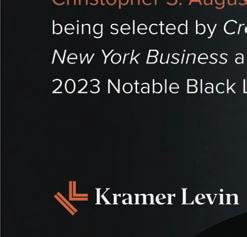
DEE POKU SPALDING
Founder and CEO

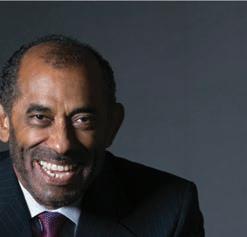

the WIE Suite
As chief executive of the WIE Suite, an action-oriented membership community of women leaders, Poku Spalding aims to rede ne the way women can achieve success. Under her leadership, the suite had a 50% revenue increase and added Fortune 500 partners. She helped launch the 2 Million Mentor Minutes initiative. Poku Spalding, who sits on the British Academy of Film’s strategic diversity, equity and inclusion steering committee, founded Black Women Raise, a platform designed to accelerate Black women’s ability to grow capital and scale their work.
MEISHA PORTER

President and CEO
Bronx Community Foundation
As the inaugural president and chief executive of BxCF, Porter leads the foundation’s work to eradicate social inequity and advance economic security for all Bronx residents. She helped launch the Bronx Cannabis Hub to repair harms endured during prohibition; the Bronx Gigabit Center to close the digital divide; and the Bronx School for Law, Government and Justice. She previously served as chancellor of the New York City Department of Education, where she was responsible for the system’s 1 million students across more than 1,800 schools.

MICHELLE PRYCE-SCREEN
Executive director

Getting Out and Staying Out
Pryce-Screen oversees the day-to-day operation of programs at Getting Out and Staying Out, an organization that supports youths a ected by and exposed to the criminal legal system. As executive director and chief program o cer, she has re ned the participant- and community-centered model for GOSO, aiming to create an e ective team of program directors, social workers and supportive sta . Pryce-Screen serves on the board of trustees at the Trevor Day School, where she chairs the diversity, equity and inclusion committee and helped found the Parents of Color A nity Group.
18 | CRAIN’S NEW YORK BUSINESS | FEBRUARY 20, 2023 2023
MICHAEL PUGH President and CEO Carver Federal Savings Bank

Pugh has advocated locally and nationally for increased economic empowerment in communities of color, and he has spearheaded initiatives that strengthen minorityowned small businesses in New York City. As chairman of the Society for Financial Education and Professional Development, he has led Carver’s partnership with the nonpro t to strengthen nancial literacy at three historically Black colleges and universities. Other posts he has held include board positions for the Community Development Bankers Association and for the nonpro t Economic Club of New York. Pugh regularly holds female entrepreneurial roundtables.
JOCELYNNE RAINEY President and CEO






Brooklyn Community Foundation

e Brooklyn Community Foundation seeks to mobilize people, capital and expertise for a more equitable Brooklyn. Aiming to advance the foundation’s commitment to racial justice, Rainey has overseen a transition to participatory grant-making, which gives community members decisionmaking power. Rainey is a member of the New York City Workforce Development Board and a trustee of both the New York College of Technology Foundation board and the Mark Morris Dance Group board. She was named one of e Network Journal’s 25 In uential Black Women in Business in 2016.
ARVA RICE Chair of the board Civilian Complaint Review Board
As acting chair of the CCRB, Rice leads e orts to advocate for police accountability and reform. Working directly with the mayor, City Council speaker and police commissioner, she has helped increase the agency’s transparency and investigative powers, notably by establishing the racial pro ling and bias-based policing unit. Rice led the creation of a CCRB report analyzing police misconduct during Black Lives Matter protests. She is a member of the Reform and Reinvention Collaborative, which created a plan for the New York Police Department. She is president and CEO of the New York Urban League.
JUSTIN RODGERS
President and CEO
Greater Jamaica Development Corp.

Rodgers manages a sta of predominantly minority employees and works to promote growth for downtown Jamaica’s retail, industrial and economic base. He oversees the inclusion of minority- and woman-owned business enterprises in all GJDC projects. Rodgers is co-chair of the business development committee for the redevelopment of Kennedy Airport, focusing on MWBE involvement. Rodgers, who has facilitated more than $1 billion of development projects in Jamaica, is a member of the United Black Men of Queens, where he o ers mentorship and employment opportunities.

JACKIE ROWE-ADAMS
President & co-founder

Harlem Mothers and Fathers SAVE (Stop Another Violent End)
At SAVE, which Rowe-Adams helped found, she is responsible for securing funds, managing day-to-day operations, and coordinating peer-support meetings for families who have lost loved ones to violent crime, especially gun violence. She advocates health equity and runs support groups to help community members cope with trauma, as she works toward the organization’s mission of making Harlem safe for the Black community. Previously, Rowe-Adams was appointed to Gov. Andrew Cuomo’s Covid-19 Vaccination Equity Board. She sits on the boards of the Addicts Rehabilitation Center and Project Harmony. In addition, she is on the board of NYC Health + Hospitals.
FEBRUARY 20, 2023 | CRAIN’S NEW YORK BUSINESS | 19
PASCALE SABLAN
Associate principal
Adjaye Associates
Recently promoted to associate principal at architecture and design firm Adjaye Associates, Sablan is president of the National Organization of Minority Architects, which seeks to promote diversity in architecture through professional development and community engagement. She has hosted dozens of exhibitions elevating the work and identity of more than 800 diverse designers. Sablan, who has been featured in Forbes magazine, was awarded the 2021 American Institute of Architects’ Whitney M. Young Jr. Award. She also ascended to the AIA College of Fellows, becoming the youngest Black woman ever to receive that honor.
WENDELL SCOTT
Senior vice president of sales




Disney
Scott oversees media and investment partnerships for advertising holding companies across Disney’s linear, streaming, digital and social properties. He also leads employee and career development on the Disney advertising sales’ diversity, equity and inclusion committee, which aims to advance the development of diverse employees. Scott and his team worked on Disney’s involvement with Afrotech, an investing and wealthbuilding platform for the Black community. Committed to amplifying Black voices and representation, he launched the Belong sponsorship program, which pairs underrepresented talent with executives. In addition, he mentors people seeking career advancement.
WESTON SPROTT
Dean the Juilliard School
Sprott is dean and director of Juilliard’s Preparatory Division, where he oversees programming and initiatives and manages faculty, staff and hundreds of students. Last year he spearheaded two new programs that commissioned more than 40 works by artists from underrepresented backgrounds. Sprott’s commitment to advocacy has contributed to initiatives shifting the cultural landscape of the music industry, including the creation of the Black Orchestral Network. He has received the Sphinx Medal of Excellence and the Community Music Center of Boston’s Kleshinski Award. He is board chair of the Friends of the Stellenbosch International Chamber Music Festival.
GILDA SQUIRE
Founder & president
Squire Media & Management
At her public relations firm, Squire provides talent management and brand marketing for clients including Angela Bassett, Wendell Pierce and the Misty Copeland Foundation. Committed to hiring Black business owners as subcontractors, she helps her clientele—the majority of which is Black—establish media and brand footprints. Squire also mentors Black professionals and entrepreneurs. Notably, she provides counsel to choreographer Kyle Abraham and his company, Abraham in Motion, where she serves on the board of directors.



SHANA STEPHENSON
Chief brand officer
New York Liberty
Stephenson oversees the daytodaymanagement of marketing, partnership initiatives and content for the Liberty. Responsible for maintaining relationships with core fans and building relationships with new ones, she exercises her power to center Black women, who make up 80% of the Women’s National Basketball Association. Recognized for spearheading initiatives raising awareness of criminal justice reform, maternal health and entrepreneurship, Stephenson recently became a member of the Women’s Leadership Board at the Sports Innovation Lab. She is a mentor at Next Gem Femme, a mentorship program aimed at accelerating career opportunities for young women of color in industries traditionally dominated by men.
“20 | CRAIN’S NEW YORK BUSINESS | FEBRUARY 20, 2023
2023
Christina Swarns is executive director of the nonprofit Innocence Project, which works to exonerate prisoners through post-conviction DNA testing and to develop policies reforming the criminal-justice system. She has led the organization through the release of nine clients in the past year, including partnering with co-counsel, community leaders and activists to stop the execution of Pervis Payne and overturn the death sentence of Duane Buck. Swarns, who is dedicated to lowering the rate of wrongful convictions in New York, has received the Redlich Capital Defense Distinguished Service Award and was named a University of Pennsylvania honorary Fellow in residence.
As general manager at Wollman Rink and vice president of Wollman Park Partners, a coalition of New Yorkers that operates the storied Central Park skating venue, Tomlin focuses on transforming the rink into an inclusive destination for year-round use. She and her majority-female staff, predominantly people of color, work to establish partnerships with community organizations, including the Boys’ Club of New York, Green City Force and Ice Hockey in Harlem. Aiming to increase access to ice sports for all young people, she launched an initiative to reach undocumented New Yorkers and has offered free skating time and rentals. Tomlin is founder and chief operating officer of Black Women in Sports and Entertainment.


RANDALL TUCKER
Executive vice president and chief inclusion officer

Mastercard
Tucker is responsible for aligning Mastercard’s global diversity and inclusion initiatives with corporate business strategy. He leads the company’s In Solidarity initiative, which aims to close the racial wealth and opportunity gap nationwide by investing $500 million in Black communities during the next five years and connecting Black-owned businesses to products, services, technology and financial support. Tucker was named one of Savoy magazine’s 2022 Top Black Executives. He has been featured by Fortune and CBS for his expertise on matters of diversity, equity and inclusion.
LYNNETTE VERGES
Chief operating officer
National Alliance on Mental Illness–New York City Metro


Verges oversaw NAMI-NYC’s pivot to virtual classes and support groups in response to the pandemic, including coordinating more than 300 volunteers and developing safety policies. She also has led the innovation of NAMI’s culturally responsive programs, including the Black Minds Matter, Family and Friends and LGBTQ+ support groups. With more than 20 years of nonprofit and leadership experience primarily serving Black and brown New Yorkers, she tries to help underserved communities when setting the organization’s strategic priorities. Verges is board secretary for the Banana Kelly Community Improvement Association.

DR. INGRID WALKER-DESCARTES

Chair of the AAP Chapter 2 Committee on the Prevention of Family Violence Maimonides Health
Walker-Descartes serves in numerous roles at Maimonides Medical Center in Brooklyn. In her clinical positions, she practices general pediatrics and cares for abused children. As an administrator, she is vice chair of education for the pediatrics department, program director of the pediatrics residency training program and director of child maltreatment services. Walker-Descartes also serves as chief medical officer for the Jewish Child Care Association, a foster-care organization that helps welfareinvolved children. She was honored by the United Hospital Fund for her work and leadership in the development of the first child abuse fellowship in New York state.
February 20, 2023 | CraIN’S NeW yOrK buSINeSS | 21
STEFANIE TOMLIN General manager, Wollman Rink Vice president, Wollman Park Partners
CHRISTINA SWARNS Executive director Innocence Project
the time. “I make the analogy that, post-9/11, people didn’t flee and hide in fear of another act of terrorism, even though that risk existed.”
In an October 2020 conference call, SL Green Realty CEO Marc Holliday said he hoped others would soon follow his staff in returning to the office.
“We wish and encourage other companies to do the same for the sake of their employees, many of whom feel disconnected,” he said. “We recognize this interim period is a moment of uncertainty” for office tenants.
Roth of Vornado felt the same way in November 2020.
“For sure, normalcy will return. … And I believe ‘return to normal-
workplace habits were hardening into cement. Even so, SL Green’s Holliday said he didn’t see much of a future for hybrid work.
“I believe this will be at first limited in practice and over time will become even less and less prevalent,” he said on a call that spring.
Roth concurred.
“Over the summer and to the early fall, New York will be reopening and returning to normal,” he said.
“All of our tenants are telling us that they are anxious to bring their employees back to the office. … The kitchen table may be a place for some, but I continue to believe the urban office is the workplace of the future.”
Rechler wasn’t so sure anymore, though.
“The genie is out of the bottle,” he told the Financial Times in July 2021. “And so what is going to come back is clearly going to be different from what existed before. We are all going to have to adapt.”
By November 2021 Roth realized that something had changed.
cy’ will be the order of the day in months, not in years,” he said on an earnings call. “Most importantly, we are hearing from all our tenants that Zoom fatigue is real, productivity is down, and CEOs want their employees back in the office.”
By the spring of 2021, the pandemic was a year old, and new
“I must admit that our tenants and we are a little frustrated by how long the return-to-work process is taking,” he said. “But there’s no doubt that work in office will win over work alone at the kitchen table.”
In February 2022, a month after taking office, Mayor Eric Adams
proclaimed it was time to get New Yorkers back to the office.
“We can’t send mixed messages,” he said.
By the spring of 2022, Rechler was feeling more confident.
“ Talking to clients, by this summer we’ll be at the 80% level of occupancy,” he predicted in an interview with CNBC.
In July 2022 the mayor warned that if workers don’t return, Manhattan’s business districts could be permanently impaired. But in an acknowledgment that remote work isn’t going away, he raised questions about the fairness of white-collar workers staying at home while many others could not.

“If I’m an attorney and I can work from home, what do I say to that bus driver that can’t or that school service worker that can’t?” Adams asked. “We have to be delicate, smart and have equity in mind as we navigate what that future of work looks like.”
That same month Holliday
inched closer to accepting the permanence of remote work by acknowledging tenant demand was “shifting” as big tech firms “adapt to new workforce patterns.”
Misplaced optimism
In December 2022 New York’s biggest commercial landlord effectively conceded his optimism about a return to the office had been misplaced.
“The hybrid work model has persisted far longer than I expected it to,” Holliday said.
This month Rechler told Crain’s C. J. Hughes that he is ready to convert prewar office buildings into apartments.
“I said to my team, ‘Let’s be intellectually honest with ourselves,’ ” he said. “‘What are alternatives we should pursue relative to these [obsolete] buildings?’ ”■
22 | CRAIN’S NEW YORK BUSINESS | FEBRUARY 20, 2023 Nominate a leader who makes significant, sustainabile contributions within their industry and community and measurable environmental impact through their role. Nominations Due February 24 BUTTON
BUTTON
NOMINATE NOW CrainsNewYork.com/NotableNoms
TEXT
TEXT
OFFICE FROM PAGE 1 ALAMY
“BUT THERE’S NO DOUBT THAT WORK IN OFFICE WILL WIN OVER WORK ALONE AT THE KITCHEN TABLE”
Contact
Notice of Qualification of UNISON RENEWABLES US, LLC
Appl. for Auth. filed with Secy. of State of NY (SSNY) on 01/12/23. Office location: NY County. LLC formed in Delaware (DE) on 11/16/21. SSNY designated as agent of LLC upon whom process against it may be served. SSNY shall mail process to c/o Corporation Service Co., 80 State St., Albany, NY 12207-2543. DE addr. of LLC: 251 Little Falls Dr., Wilmington, DE 19808. Cert. of Form. filed with Secy. of State, John G. Townsend Bldg., 401 Federal St., Ste. 4, Dover, DE 19901.
Purpose: Any lawful activity.
1330 CONSULTING LLC.
Arts. of Org. filed with the SSNY on 01/04/23. Office: New York County. SSNY designated as agent of the LLC upon whom process against it may be served. SSNY shall mail copy of process to the LLC, 77 7th Avenue, Apartment 4, New York, NY 10011. Purpose: Any lawful purpose.
PUBLIC & LEGAL NOTICES
Notice of Qualification of HAZA PROPS LLC
Appl. for Auth. filed with Secy. of State of NY (SSNY) on 01/05/23. Office location: NY County. LLC formed in Delaware (DE) on 08/12/22. Princ. office of LLC: 4415 Hwy. 6, Sugar Land, TX 77478. SSNY designated as agent of LLC upon whom process against it may be served. SSNY shall mail process to c/o Corporation Service Co., 80 State St., Albany, NY 12207-2543. DE addr. of LLC: 251 Little Falls Dr., Wilmington, DE 19808. Cert. of Form. filed with DE Secy. of State, Div. of Corps., John G. Townsend Bldg., 401 Federal St., Ste. 4, Dover, DE 19901. Purpose: Real lease property management.
Notice of Formation of Limited Liability Company (LLC). NAME: SIX SIGMA CAPITAL LLC
- Articles of Organization filed with the Secretary of State of New York (SSNY) on 05/27/2022. Office location: NEW YORK County. SSNY shall mail a copy of process to: The LLC, 135 W 36TH ST FL 19, NEW YORK NY 10018.
Purpose: Any lawful purpose.
Notice of Formation of Limited Liability Company (LLC). NAME: HUX FOUNDATION LLC
-Articles of Organization filed with the Secretary of State of New York (SSNY) on 04/12/2022. Office location: NEW YORK County. SSNY shall mail a copy of process to: The LLC, 135 W 36TH ST FL 19, NEW YORK NY 10018.
Purpose: Any lawful purpose.
Notice of Qualification of FERRADO HOTELS, LLC
Appl. for Auth. filed with Secy. of State of NY (SSNY) on 01/04/23. Office location: NY County. LLC formed in Delaware (DE) on 03/17/06. SSNY designated as agent of LLC upon whom process against it may be served. SSNY shall mail process to the LLC, 20411 SW Birch St., Ste. 360, Newport Beach, CA 92660. DE addr. of LLC: 251 Little Falls Dr., Wilmington, DE 19808. Cert. of Form. filed with Secy. of State, 401 Federal St., Ste. 4, Dover, DE 19901.
Purpose: Any lawful activity.
REQUEST FOR PROPOSAL
The Wildlife Conservation Society: wcs.org, is soliciting a Request for
Proposal for Travel Management Services from qualified TMCs.
To request a copy of the solicitation, please submit your request to Nicole Nufer globalpurchasing@wcs.org
Key Dates:
Solicitation Date- 2-21-2023
RFI no later than 3-6-2023
Proposals Due 3-14-2023 no later than 5:00 p.m. EST (GMT-5) to email globalpurchasing@wcs.org
9/11 Memorial & Museum
Cleaning & Maintenance Services
Request for Proposal
The National 9/11 Memorial & Museum (“9/11 Memorial”) is seeking a qualified cleaning and maintenance services company that can provide cleaning and maintenance services for the 9/11 Memorial—both on the Memorial plaza and within the Museum. A copy of the request for proposal may be obtained in person following submission of a NonDisclosure Agreement (NDA) signed by an officer of the company. NDAs should be requested via email to Mr. Abilio Guimaraes at aguimaraes@911memoria.org
The 9/11 Memorial will review all submittals and invite select companies for interviews. Additional questions can be submitted to RFP@911memorial.org no later than Monday, February 20, 2023, Subject Line: Cleaning and Maintenance RFP Questions. All proposals will be due on Thursday, March 9, 2023 by 3 p.m. EST.
PUBLIC & LEGAL NOTICES
Notice of Qualification of COLBECK STRATEGIC LENDING III CARRY VEHICLE, LLC Appl. for Auth. filed with Secy. of State of NY (SSNY) on 01/04/23. Office location: NY County. LLC formed in Delaware (DE) on 11/09/22. Princ. office of LLC: 888 Seventh Ave., 29th Fl., NY, NY 10106. SSNY designated as agent of LLC upon whom process against it may be served.
SSNY shall mail process to the LLC at the princ. office of the LLC. DE addr. of LLC: c/o Corporation Service Co., 251 Little Falls Dr., Wilmington, DE 19808. Cert. of Form. filed with Secy. of State of DE, Dept. of State, Div. of Corps., John G. Townsend Bldg., Dover, DE 19901.
Purpose: Any lawful activity.
Notice of Formation of Limited Liability Company (LLC). NAME: FISCAL CAPITAL LLC
- Articles of Organization filed with the Secretary of State of New York (SSNY) on 6/02/2022. Office location: NEW YORK County. SSNY shall mail a copy of process
to: The LLC, 135 W 36TH ST FL 19, NEW YORK NY 10018.
Purpose: Any lawful purpose.
POSITION AVAILABLE
Vice President, Research (WorldQuant, LLC / New York, NY)
– Develop quantitative strategies for making profitable trades in the global equity mrkts; research financl lit to develop a deeper undrstndng of the currnt mrkt structre for carrying out informed trades. Reqs Bach in Comp Sci, Comp Engnrng, Math, or Physics or clsly reltd field & 2 yrs exp in job offrd or 2 yrs exp as VP, Research, &/or Sr. Quant Researcher, &/or Quant Researcher, or in similar positns in financl quant research. Bkgd in traing, edu, or exp must incl bkgd in statistcl modelng concepts (incldg time series analysis, regression, hypothesis testng, & Bayesian inferencing); good program’g skills in C++ & Python; demnstrtd proficncy in sftwre develpmnt tools (incldg Git, Bash, & SQL); demnstrtd efficiency in usage of libraries & tools built for data sci & analysis (incldg NumPY, scikit-learn, Matplotlib, MKL, & BLAS). Salary $120,000 to $150,000 per yr. Send resumes to Sandra.DiCairano@worldquant.com; ref job title in subjct line.
PUBLIC & LEGAL NOTICES
BRAVE TOTS LLC.Filed with SSNY on 09/28/22. Office: Bronx County. SSNY designated as agent for process & shall mail copy to: 2881 E 197th Street, 3rd Floor, Bronx, NY 10461.
Purpose: Any lawful.
Notice of Formation of InZone Logistics LLC
Arts. of Org. filed with Secy. of State of NY (SSNY) on 8/25/17. Office location: NY County. SSNY designated as agent of LLC upon whom process against it may be served. SSNY shall mail process to 718 3rd Ave, Bklyn, NY 11232
Purpose: Any lawful activity
CLASSIFIEDS
Suzanne Janik at 313-446-0455 or email: sjanik@crain.com Advertising Section FEBRUARY 20, 2023 | CRAIN’S NEW YORK BUSINESS | 23
Get your message in front of New York’s influential business community with Crain’s New York Business - Classified Ads Public and Legal Notices • Request For Proposals • Job Openings • Real Estate Business Opportunities • Event Listings and More! CLASSIFIEDS Advertising Section To place a classified ad, Call 313-446-0455 or Email: sjanik@crainsnewyork.com SUBMIT YOUR BUSINESS CLASSIFIEDS TODAY Notice of formation of Limited Liability Company. Name: EC Lower Hudson 2 LLC (“LLC”). Articles of Organization filed with the Secretary of State of the State of New York (“SSNY”) on December 23, 2022. NY office location: New York County. The SSNY has been designated as agent of the LLC upon whom process against it may be served. The SSNY shall mail a copy of any process to EC Lower Hudson 2 LLC, c/o Exact Capital Group LLC, 150 East 52nd St., 14th Floor, New York, NY 10022. Purpose/character of LLC is to engage in any lawful act or activity.








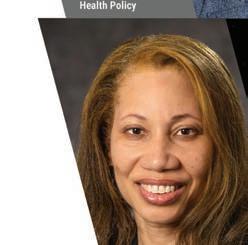


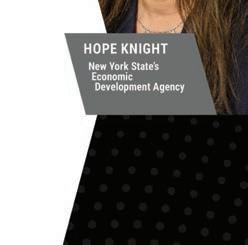













 BY EDDIE SMALL
BY EDDIE SMALL


















 BY DAVID LICHTENSTEIN
BY DAVID LICHTENSTEIN
















































































































